Hiding in plain sight!

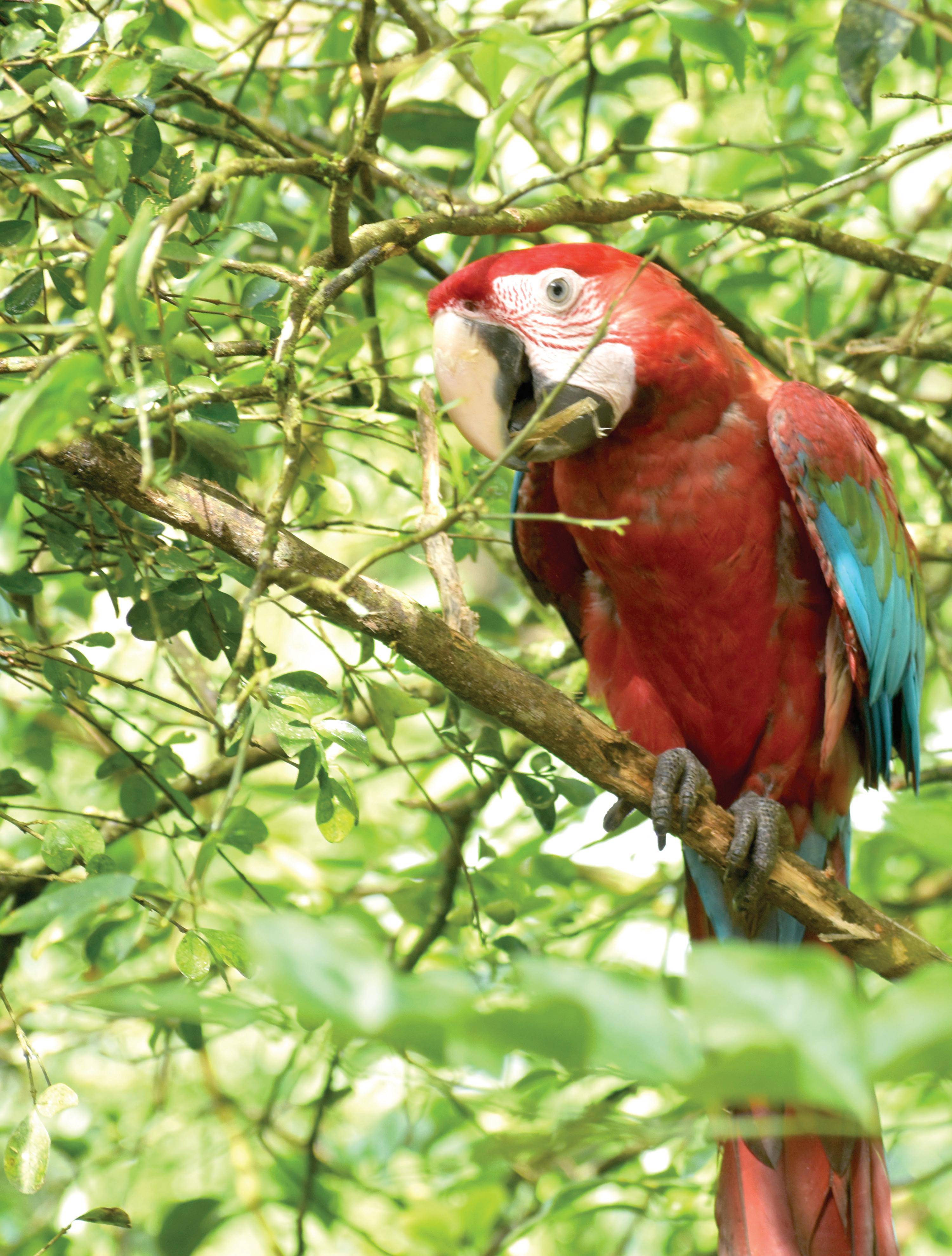



IN a remarkable display of kindness, love, empa thy, and generosity, the residents of Leguan Island have opened their hearts wide so far as providing practical assistance to the Venezuelan migrant popu lation on the northern end of the island in communi ties like Doorn Haag, Uni form, and Richmond Hill.
Residents in these parts, according to Regional Chair man Inshan Ayube, are not wealthy. Yet, they’ve will ingly lent support to the groups of people in the form of food, shelter, and cloth ing.
“Residents took them in their yard space; accepted them….I cannot express how nice I felt at seeing this. I couldn’t feel better at their response. We are taking this country in a direction of humanity,” Ayube expressed during an interview with Pepperpot Magazine.
Ayube visited the lo cation in the company of NDC Chairman Laachman Dwarka, Vice Chairman Jainarine Singh, Parliamen tary Secretary attached to the Ministry of Agriculture Vikash Ramkissoon, two businessmen from the West Coast, and other supportive
personalities.
The island has seen an influx of migrants from Ven ezuela over the past few months and residents have supported the estimated 50 persons of varying ages as much as they can through housing and provision of food, etc.



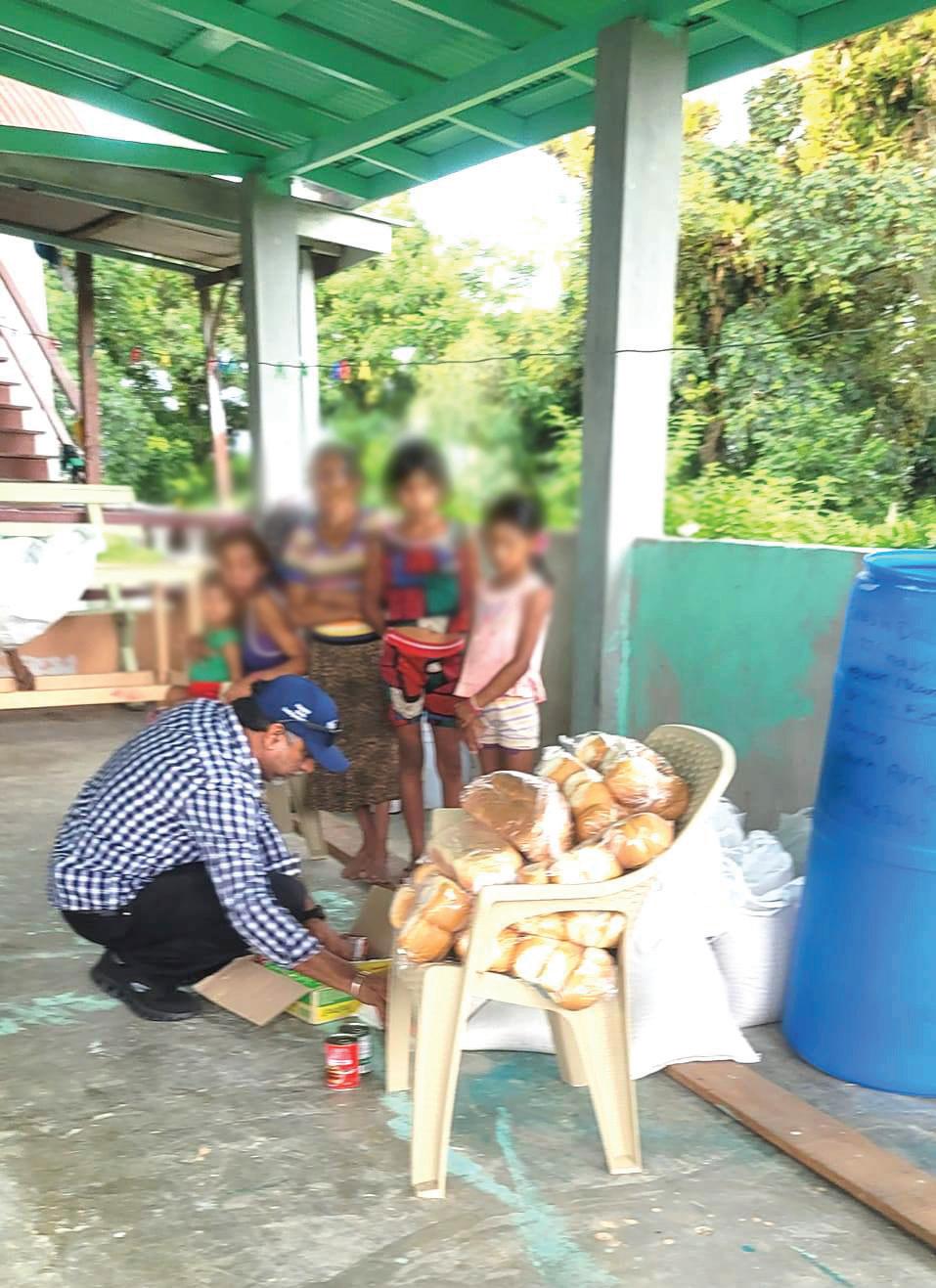

This is reportedly a so cial issue for the island that is engaging President Irfaan Ali and other Ministers.
Meanwhile, the Region al Chairman said he was acting on instructions from the government to pay a visit to the area, analyse the situa tion there, and see what temporary relief could’ve been offered to the folks. He was subsequent ly successful at putting together food, footwear, groceries, and other necessary items that he said would last the migrants three to four weeks.
According to him, they have also identified two buildings that the migrants can oc cupy once the nec essary approval is given.
Furthermore, Ayube has also discussed with Re gional Executive Officer Jagnarine Somwar and Re gional Health Of ficer Erica Forte about the possi bility of having a medical team pay a visit to the group,
ever cognizant of the need to also protect the residents of Leguan.
Meanwhile, the Office
ple, approximately 3.6 percent of the world’s population, currently live outside their
of migrants are forced to leave their homes for a com
of the High Commissioner for Human Rights - the leading United Nations entity in the field of human rights – has noted that an estimated 281 million peo
country of origin, many of whose migration is charac terised by varying degrees of compulsion.
According to the UN office, an increasing number
plex combination of reasons, including poverty, lack of access to healthcare, educa tion, water, food, housing, and the consequences of en vironmental degradation and climate change, as well as the more ‘traditional’ drivers of forced displacement such as persecution and conflict.
“While migrants are not inherently vulnerable, they can be vulnerable to human rights violations.
Migrants in an irregular situation tend to be dispro portionately vulnerable to discrimination, exploita tion and marginalisation, often living and working in the shadows, afraid to complain, and denied their human rights and funda mental freedoms. Human rights violations against migrants can include a denial of civil and polit ical rights, such as arbi trary detention, torture, or a lack of due process, as well as economic, social and cultural rights, such as the rights to health, housing or education. The denial of migrants’ rights is often closely linked to discriminatory laws and to deep-seated attitudes of prejudice or xenopho bia,” the UN office further stated.
TO make a meaningful im pact on the lives of Persons with Disabilities (PWDs), the government is fully aware that it needs to invest more in modern technology. In fact, Chief Education Officer Marcel Hutson suc cinctly puts it this way: “We can’t use old methods to deal with new situations.”
Hutson’s comments came at the inaugural National Blind Education Conference that opened last week at the National Library that saw stakeholders from all across the country participating in cluding from Regions Three, Four, Six, 10, etc.
Teachers, students, par ents, special education needs officers, senior education
officials and many other personalities came together to discuss the challenges plaguing PWDs and agree on some of the practical remedi al measures they can use to lobby government and other stakeholders to support blind education in Guyana.

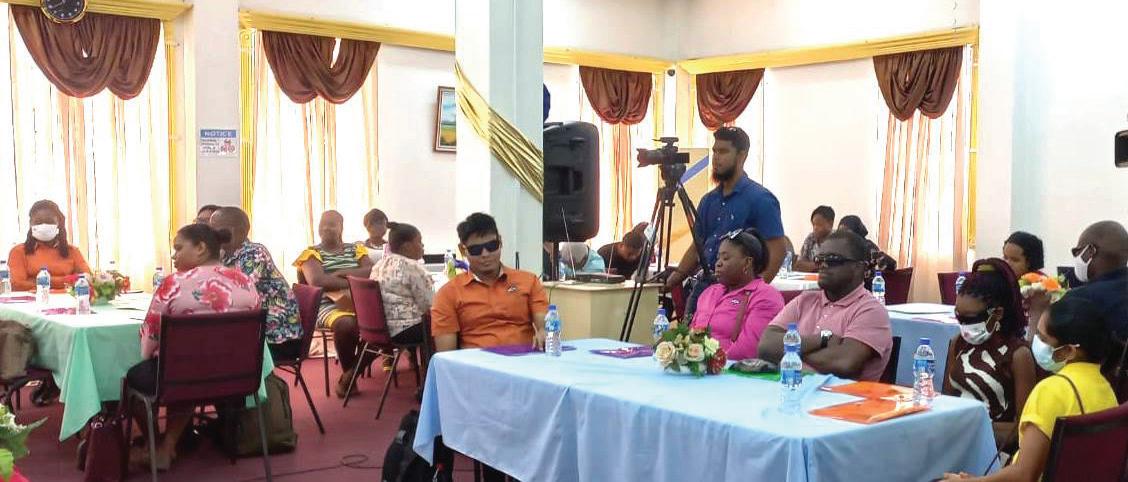

Programme Coordina tor of the Guyana Council of Organisations for PWDs (GCOPD), Ganesh Singh, is hopeful that the conference will become an annual one and also that PWDs will re ceive the necessary support. “We see that the government is doing a lot for PWDs in general and the Minister of Education has been very sup portive of special education. So we are optimistic,” he told Pepperpot Magazine in an interview.
The GCOPD used the occasion to honour Ingrid Peters for being the lon gest-serving blind educator in Guyana and Julie Lewis for being the first successful blind student in Guyana to attain tertiary-level qualifi cations.
“This is a conference on blind education and we are happy to be a part of it be cause we will be able to glean from the participants what are some of their struggles and how we as a ministry can enhance the delivery of blind education in Guyana,” Hutson related to this pub lication.
During his remarks, he referred to Sustainable De velopment Goal (SDG) Four which speaks to inclusivity and equity in access. “These
are the areas that we are con stantly investing large sums of resources in so that gener ally, special education needs persons can access quality education and live purpose driven lives,” he said, adding, “We know we need to invest more in modern technology - something that our plan is addressing. The Government is very keen on moving this forward and we’ll see in our national budget more funds being allocated.”
Chair of the National Commission on Disability (NCD) Vidushi Persaud of fered that coming out of the conference, the NCD hopes that there will be a monthly drive with the purpose of bringing a heightened focus on the blind and visually im paired community and the re alities of living without sight.
She commended the ‘tire less’ work of the Unit for the Blind and Visually Impaired

and the GCOPD and said the public should be made aware of the equipment used in Blind Education and the materials and teaching aids that are needed to enhance learning in such a setting.
Persaud said that young blind students must be em powered to learn to use and trust alternative techniques. “They need to develop pos itive attitudes toward their blindness…if they are to
“We at the Commission on Disability are cognizant of the fact that there is a grow ing awareness among par ents, teachers, blind youth, and the adult blind commu nity that the education which blind children are receiving is regrettably failing them. We hope that the panel discus sions and breakout sessions today will result in strong practical recommendations which can ensure that our Nursery, Primary and Sec ondary school children in Guyana receive a quality education which can prepare them to compete in the de manding high tech economy and today’s society.”
become mature, responsible, productive adults.”
She noted that the NCD was pleased Dr. Hutson and Senior Education Officials were present at the confer ence since its findings will inform future capacity-build ing efforts and government policies.
The conference was a partnership with GCOPD and the Ministry of Edu cation Resource Unit for the Blind and Visually Im paired and it was supported by the International Foun dation of Electoral Systems and USAID
YOUNG entrepreneur Alicias Solomon has a passion for caring for the elderly. So much so, that she decided to make it her life’s work. Solomon, who is a nurse by profession, established the Royalty Home Care and Pri vate Nursing Services and serves as the Director of the establishment which trains personnel in taking care of the Elderly. The Pepperpot Magazine recently sat down with Alicia, to get an in depth perspective and look regarding the purpose of the company.
“The idea came from work because by profession, I am a nurse so, normally, when we have patients on the ward and when they are discharged their relatives cannot provide that care to them, so they will ask if we know of any nurse who will give homecare or if we know of any good homecare place,”Solomon explained to the Pepperpot Magazine
“Right now, there is a high demand for Home Care in Guyana because I am not aware of any other nurse or persons who provide home care services other than Royalty Home Care and there are a lot of persons who are hospitalised and their relatives cannot provide that home care for them. It was this that provided an impetus for my setting up of this caring institution,” Alicia told the Pepperpot Magazine.
Alicia, noted that she had previously provided the services free of cost while performing duties as a nurse and also seeing the need for home caring nursing.

Since she began in August of this year, the 25-year-old Di rector made it clear that in the initial stage, the response by the
general populace was not quite receptive, as time progressed the response has been good.
“The majority of the patients we have are full-time right now. We have patients with chronic illnesses. Additionally we are working on setting up a plan whereby we can work with seniors on a pension plan,” she explained, while underscoring the fact that cost plays a major role. “Sometimes it isn’t all about the money.”
For the establishment, care plays a major role in taking great care of Guyana’s Senior citizens across the country, who have laboured and sacrificed in various professions.
The 25-year-old shared that depending on the severity of the case, house-to-house visits may be required when it comes to caring for seniors.
“ If we can reach out to our seniors and provide these health talks, we are planning on having that done as well, so we can prevent the seniors from get ting sick, by educating on issues such as dieting and so on,” Alicia told the Pepperpot Magazine.


There are plans by the institution to garner its own building and spread its wings to the outlined regions of Guyana
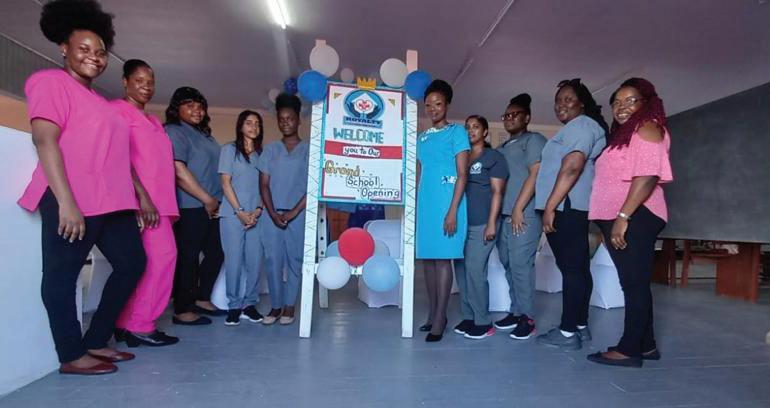
“ I want to provide a home for persons, who have been left abandoned by relatives, who do not have the wherewithal to take of those who need special ised care and attention. I want to be on the run for 24 hours,” Alicia noted .
Operating from the West Coast of Demerara, the institution provides its home care operations through out the ten administrative regions of the country.
Royalty Care Services include services such as physiotherapy, personal care, monitoring vital signs, administering medication, meal planning, and other tasks such as getting in and out of bed and checkups
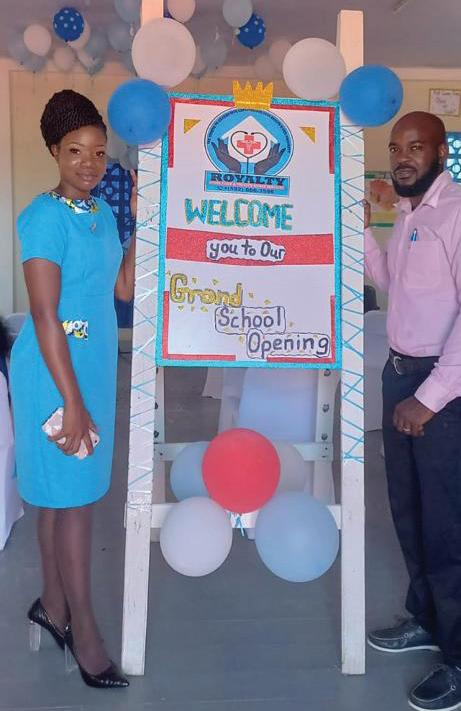
at clinics among others.
Nurses and Doctors have come on board to provide full medical care to Royalty and are employed full-time. She explained that they have various service packages that cater to all situations.
Solomon noted that a school has been set to provide training for all categories of patient care personnel to further equip them with the necessary tools to provide quality health care .
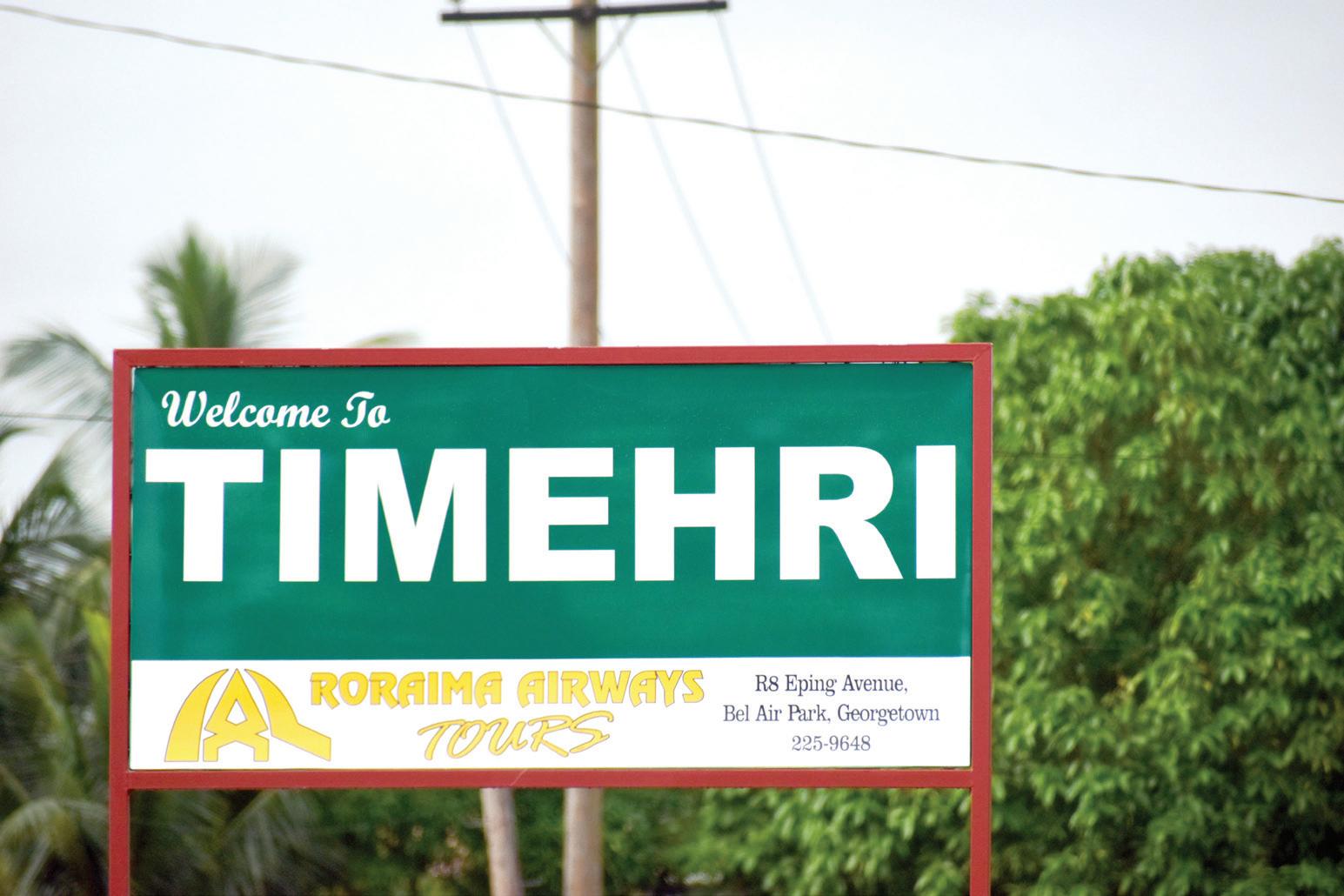
LAST week, the Pepper pot Magazine journeyed to Hyde Park, Timehri, East Bank Demerara to highlight the locals’ way of life.
Hyde Park is a very large area that goes up and down hill way into the valley and is thickly populated with people of all ethnicities.
The place is also called the old Guyana Airways Cor
poration (GAC) Road or Kali Road or ‘Jumbie Road’ and Cassava Joe Valley, Hyde Park, Timehri.
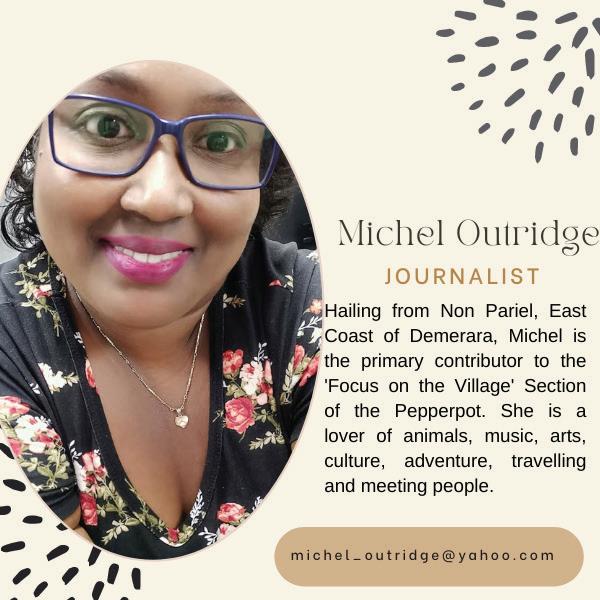
The population comprises about 1500 people of mixed race, but is dominated by Indo and Afro-Guyanese, who co-exist peacefully.

The people of this com munity are welcoming and hospitable and will take the
time out to have friendly dialogue.
The village is tucked away at the far corner near the Cheddi Jagan Internation al Airport (CJIA) in the valley that is the Cassava Joe section which goes downhill.
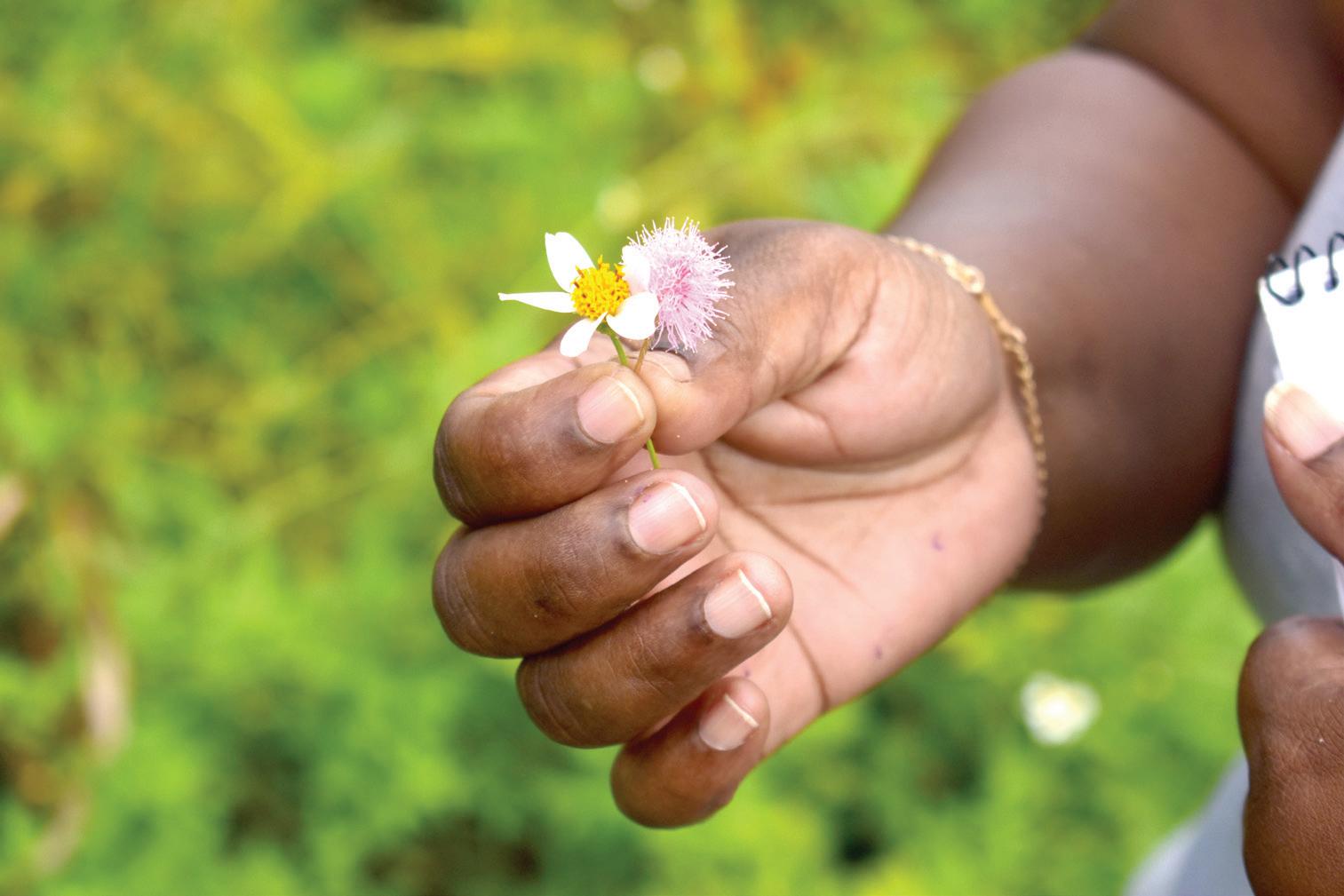
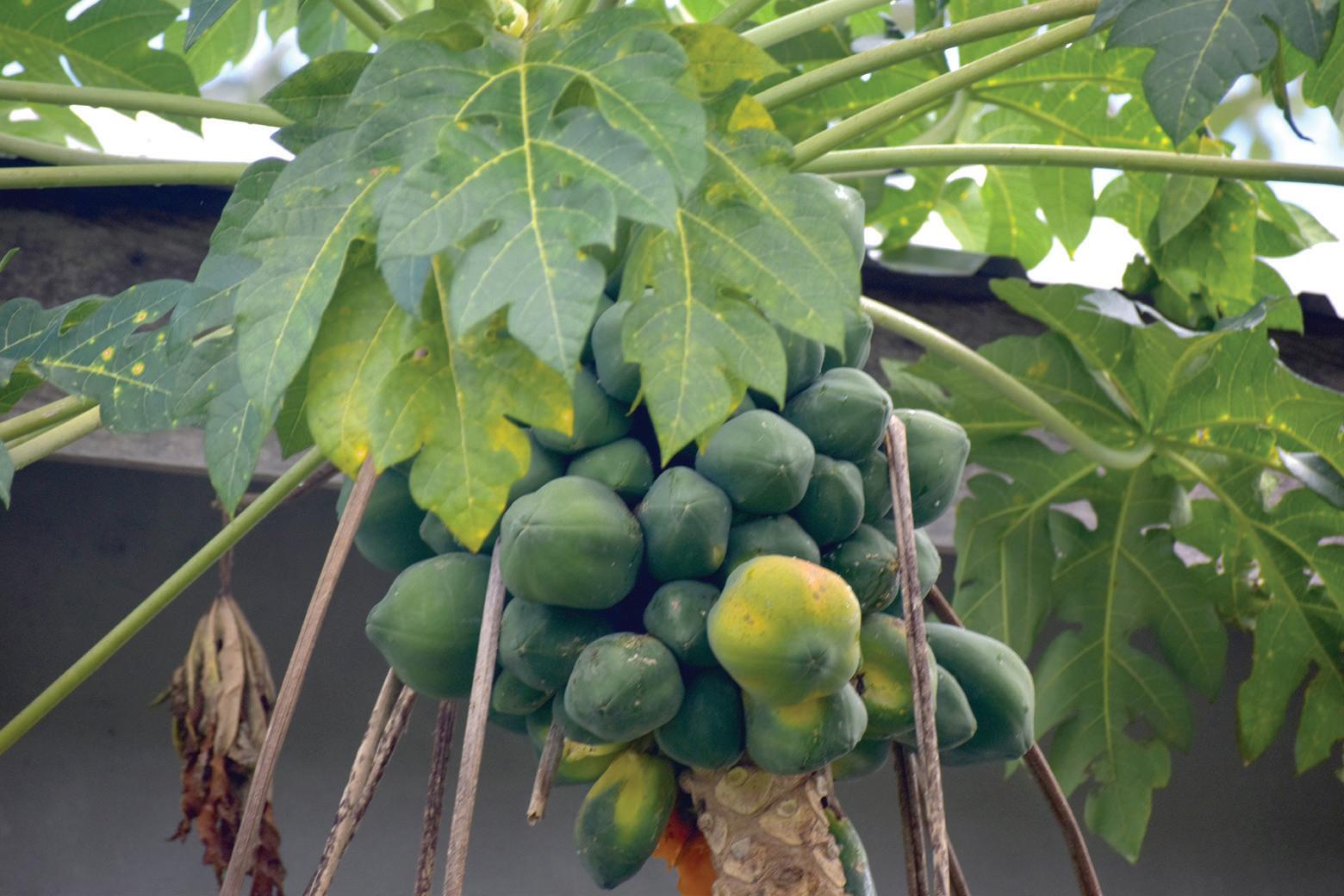
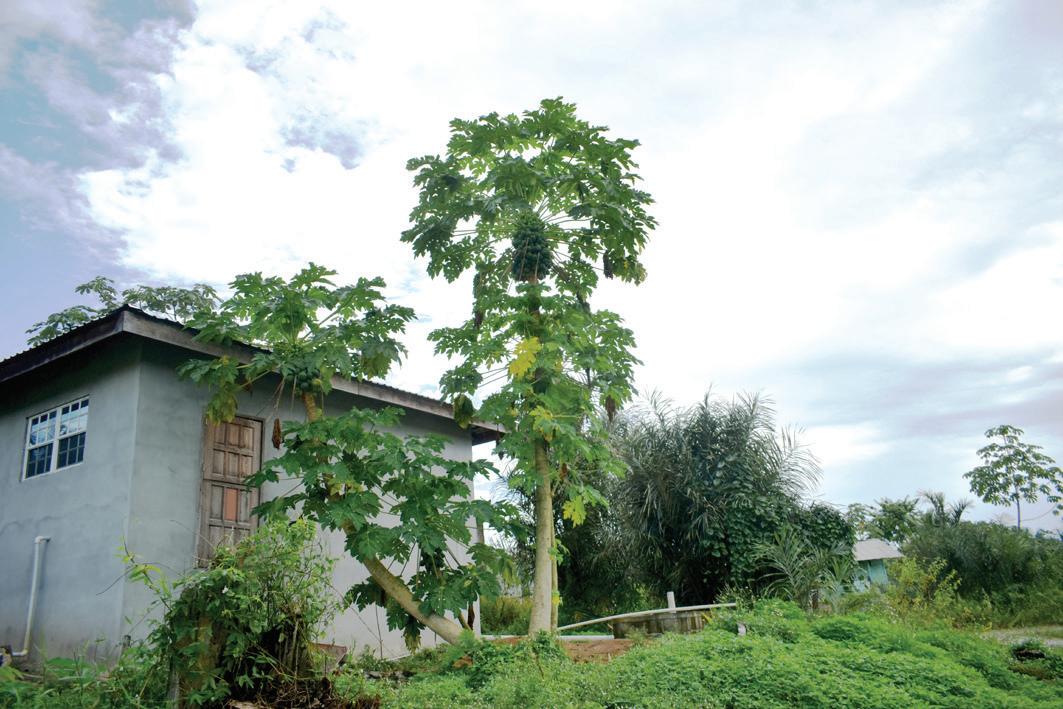

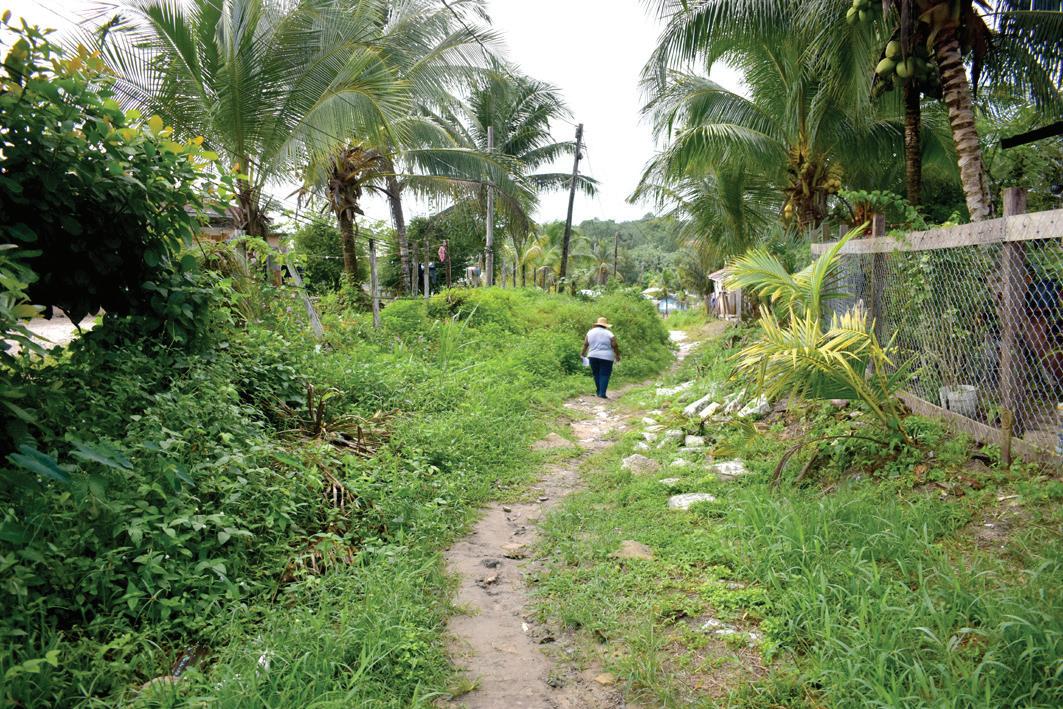
Most of the locals have jobs in the army, at the air
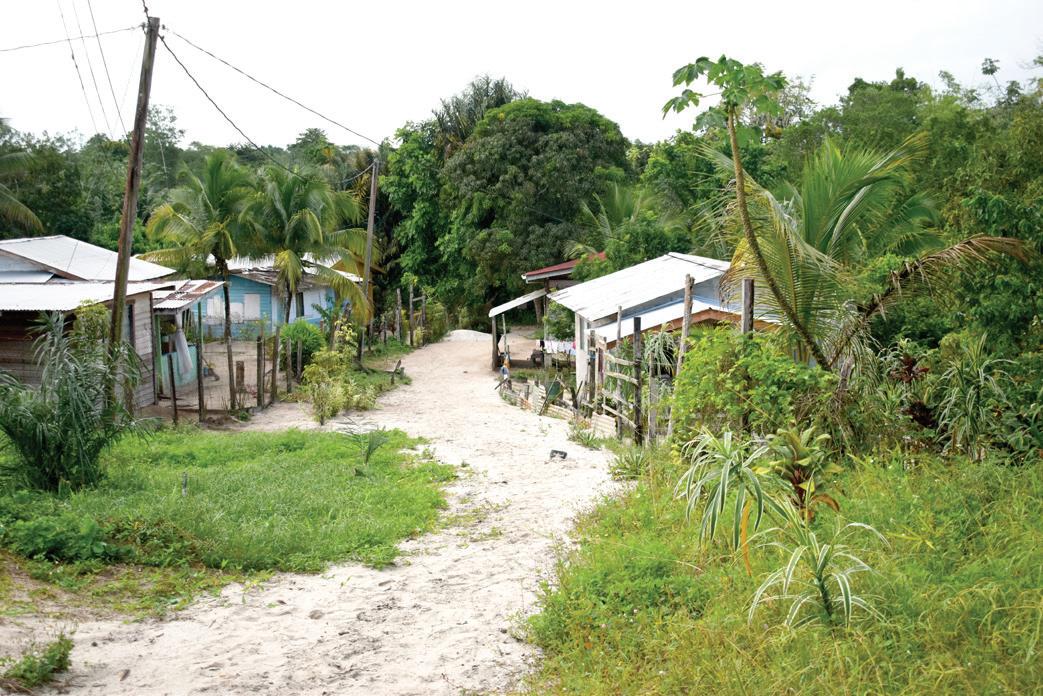
HENRY Da Silva is a resi dent of Cassava Joe Valley and has a small cement block-making business on the main public road at Hyde Park, Timehri, East Bank Demerara, where he employs one worker.

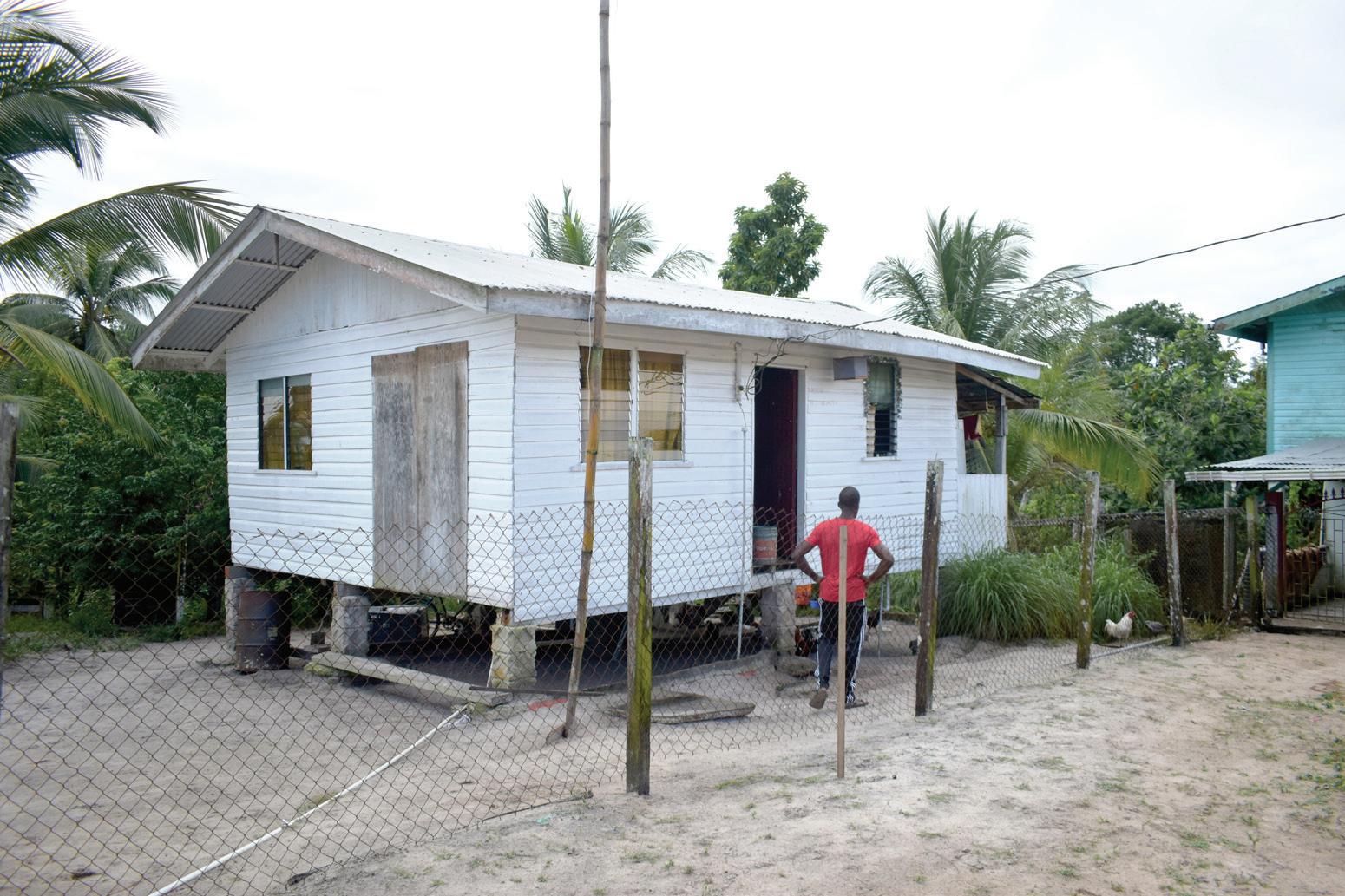
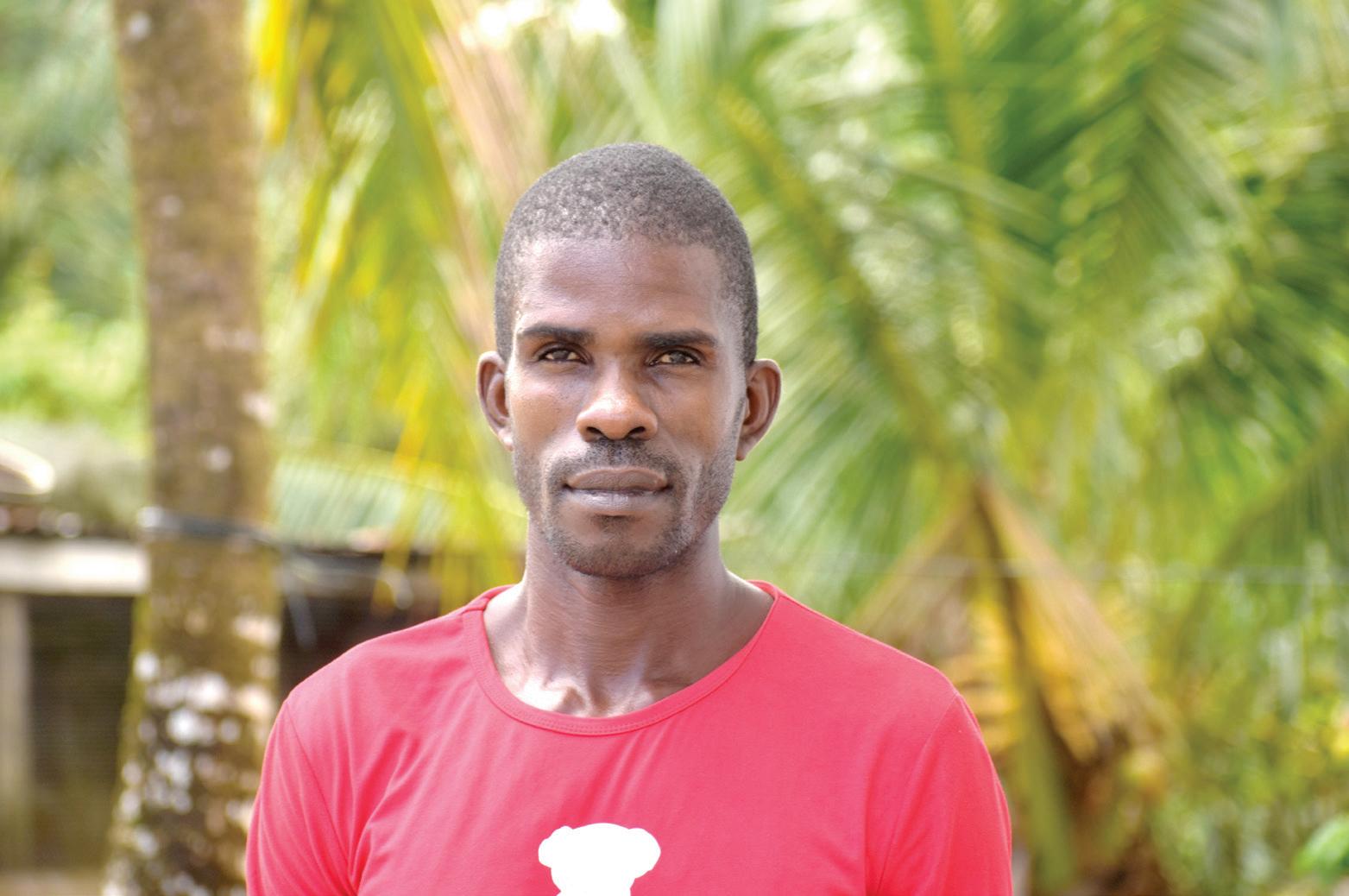
The like-minded Da Sil va told the Pepperpot Mag azine that he used to work with people, but it was prov ing to be a difficult task, so he decided to cut his losses and opened his own small business, becoming self-em ployed, three years ago.
up and became his home.
Sadly, his father has since passed away, his moth er is living in Barbados, and his four brothers are all in Guyana.
“Life is considered fair in this part of the country be cause I am doing an honest job to earn; and even though it is not a high-income earn er, I am still holding it to gether, hoping that my small business will grow,” he said.
Da Silva told the Pepper pot Magazine that despite the village being a depressed one with little or no develop ment, he, like most residents,
be closer to home and his children as a single parent.
He is currently employed as a woodworker/joiner at Timehri Docks and he has a neat, well-put-together cottage and a clean yard with his ducks and chickens.
The 37-year-old related that he used to be based in the interior, working as a miner in Region Seven (Cuyuni-Mazaruni), but had to return home when his spouse exited the home. He had to take care of his children.
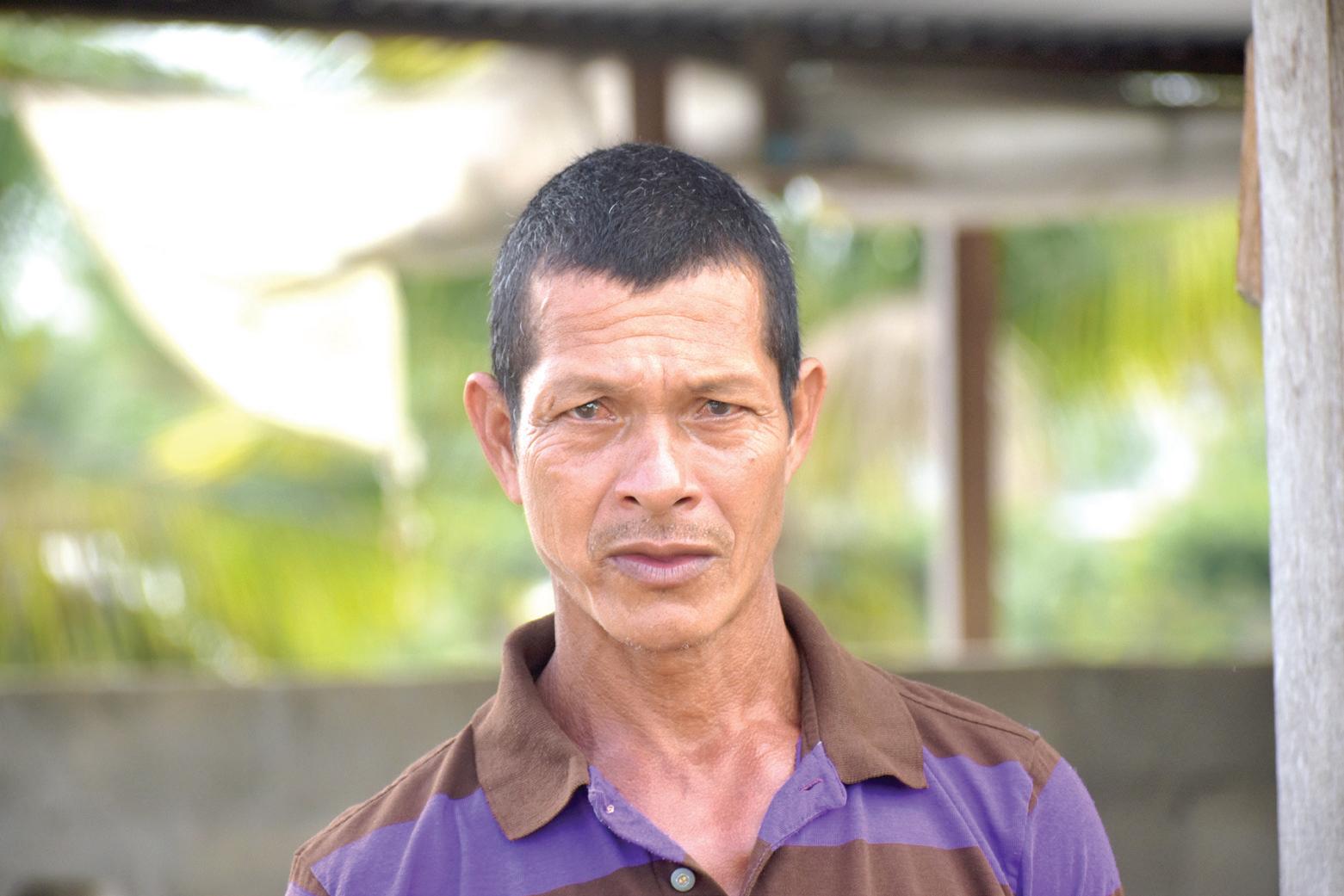
Yorrick stated that he is fortunate to be living among
He stated that even though business is often slow, he doesn’t have to an swer to anyone but himself and is faring quite well.
Da Silva has been re siding in Hyde Park Valley for the past 25 years and relocated from Mabaruma with his family when he was just a boy.
He explained that 25 years ago, his parents left their hometown in search of a better life and settled in the valley of Hyde Park, Timeh ri, the place where he grew
is doing his part to keep the environment clean.
“Down here if you don’t go in the valley, you will not know what is happening be low because from the main road you will not know that so many people reside there. It is like an entire village down here,” he said.
Meanwhile, the team also met Delon Yorrick, a father of three and a miner, who left the hinterland to
relatives, so when he has to go to work, he leaves his children in their care until he returns home.
Despite the challenges he is facing, the Hyde Park resident is optimistic that his life will get better and he is hoping to establish his own small business, so he can work from home and be near his children.
Yorrick explained that in his section of Hyde Park, Timehri, East Bank Demer ara, it is a fairly safe neigh bourhood since most people
are related by blood and there are hardly any strangers.
He added that the place is quiet and the people live
birds.
“With achieving certain things in the back of my mind, I must stay focused
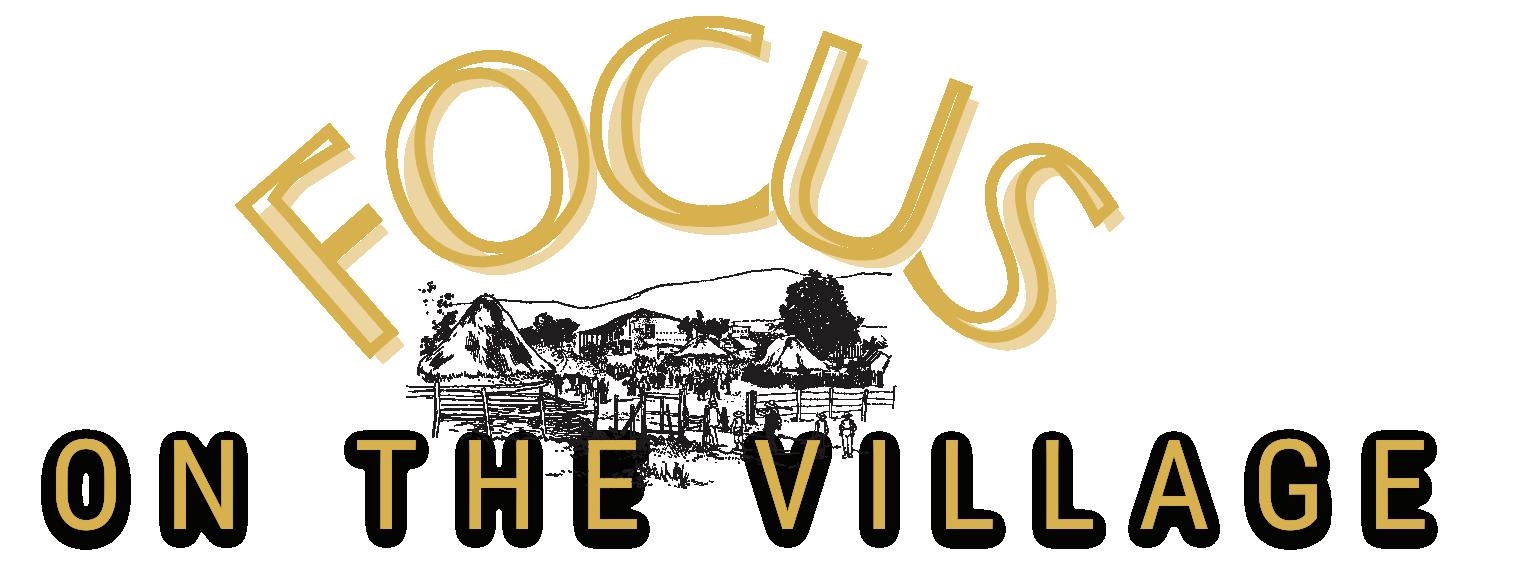
in harmony, doing what they need to ensure their side of the village is well kept.
Yorrick is planning to invest in poultry rearing soon and is working towards be coming self-employed, since he has the yard space to erect a chicken pen for some meat
to ensure my plans fall into place, because I have children to take care of and I want to be able to have my own business and be at home for them,” he explained.
Yorrick is hoping that they can benefit from an all-weather road, since they
endure a lot of hardship when they have to fetch materials and other bulky things from the main public road into the valley to their homes. This local is utilising his free time wisely to do many things in and around the home, including preparing meals and doing the house hold chores before going to work daily.
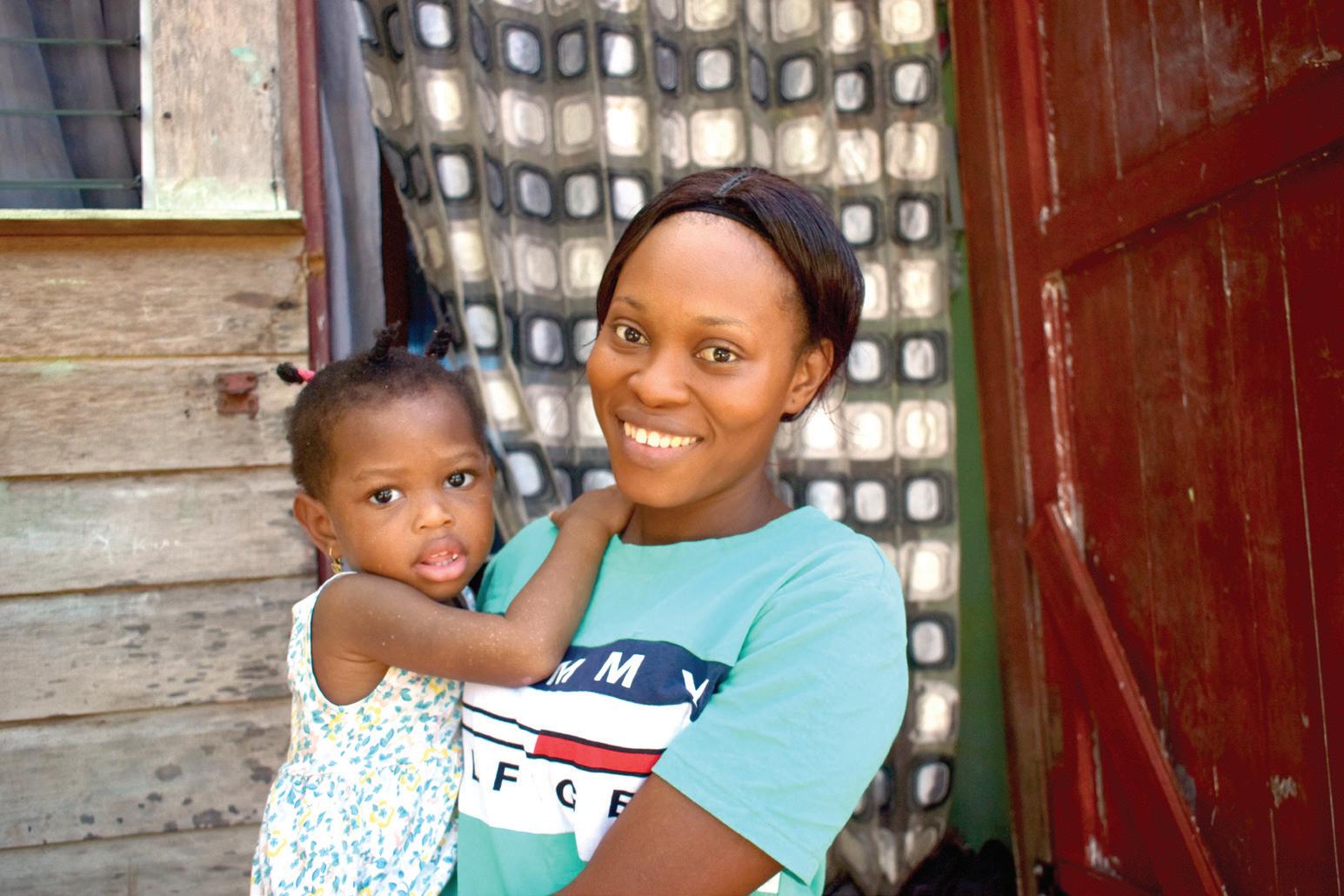 By Michel Outridge
By Michel Outridge
NAZEEMA Ali relocated to Hyde Park, Timehri, East Bank Demerara from Cotton Tree, West Coast Berbice, to start a new life,
which is located on the East Bank Demerara corridor and is a stay-at-home wife.
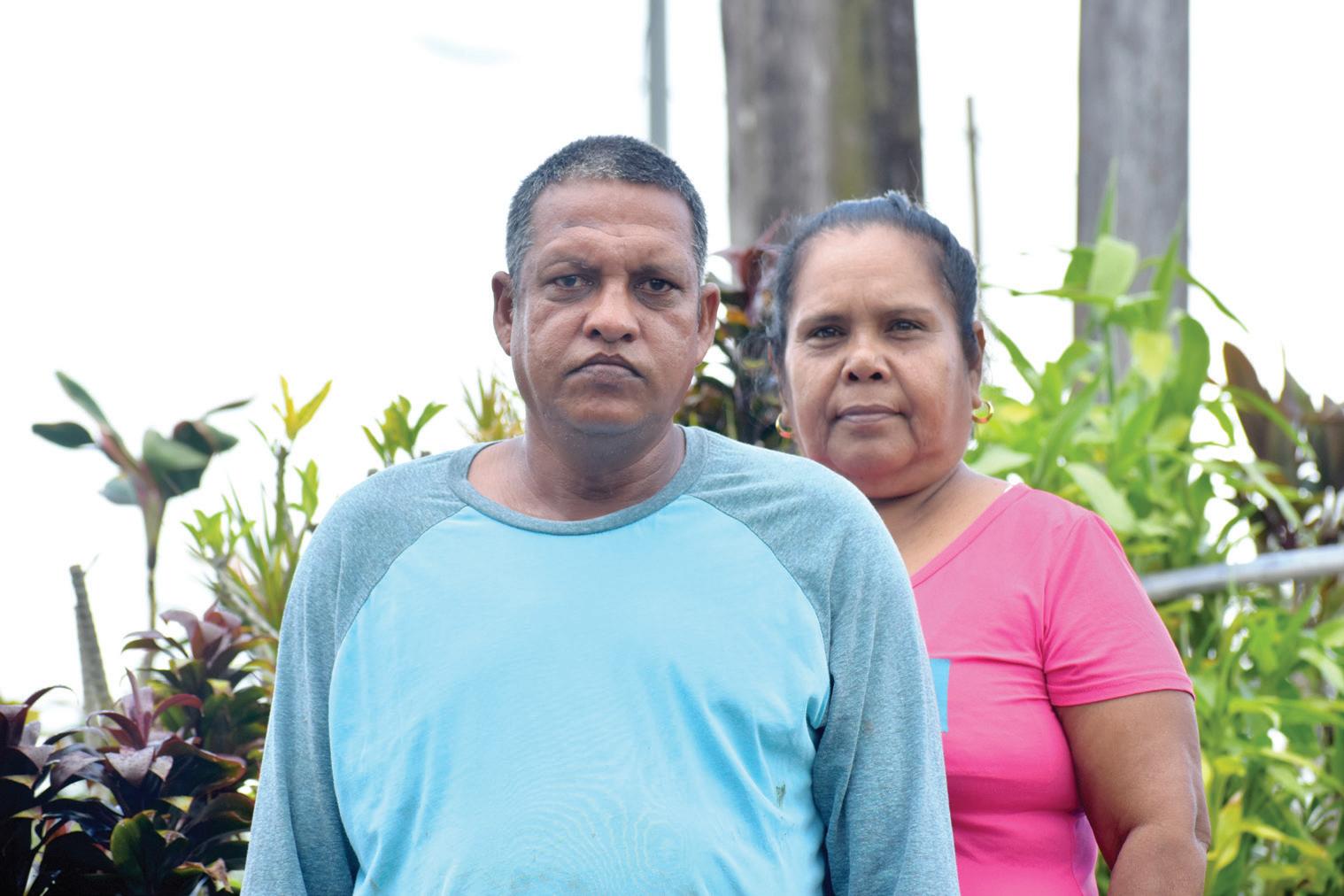
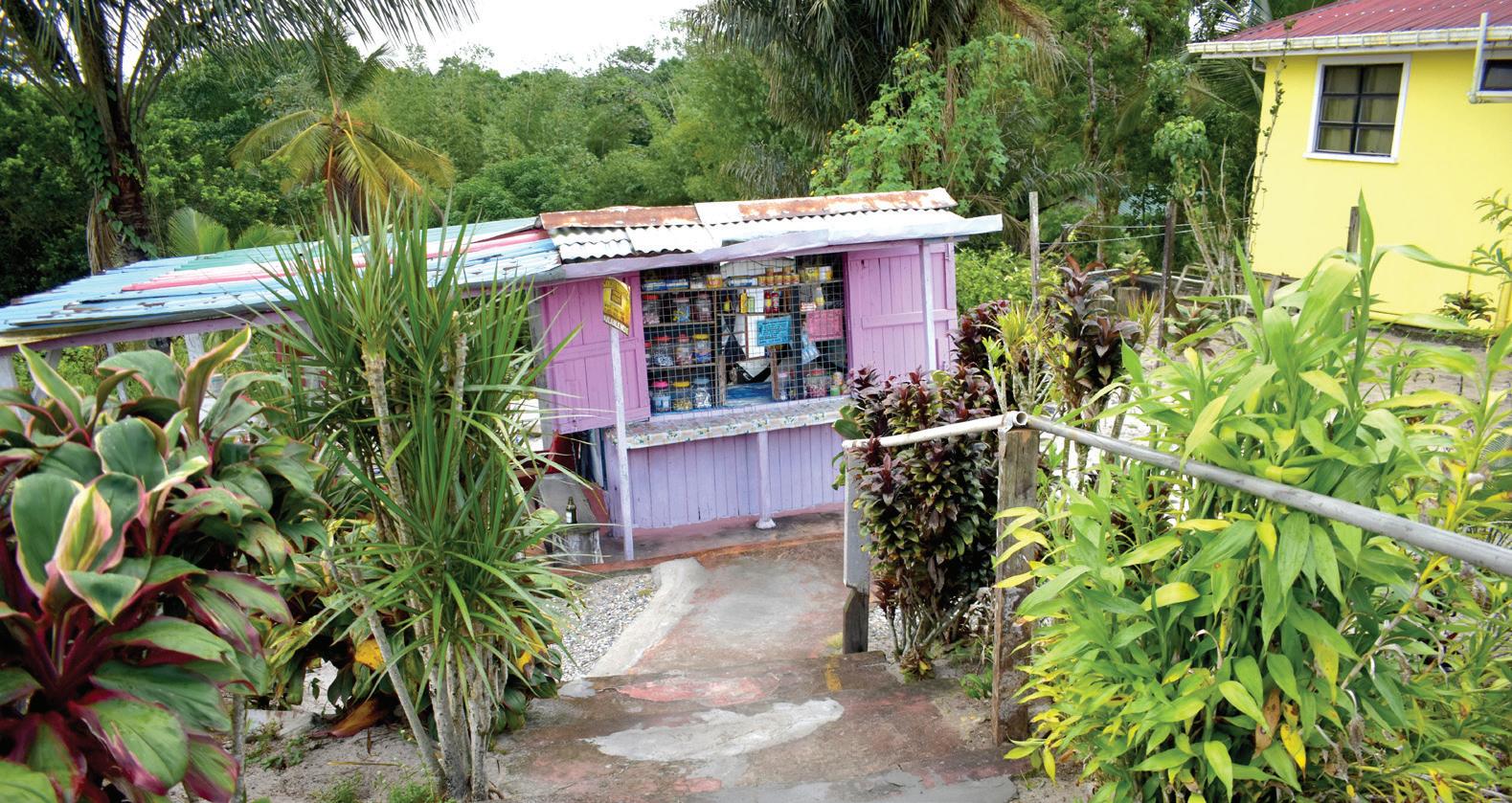

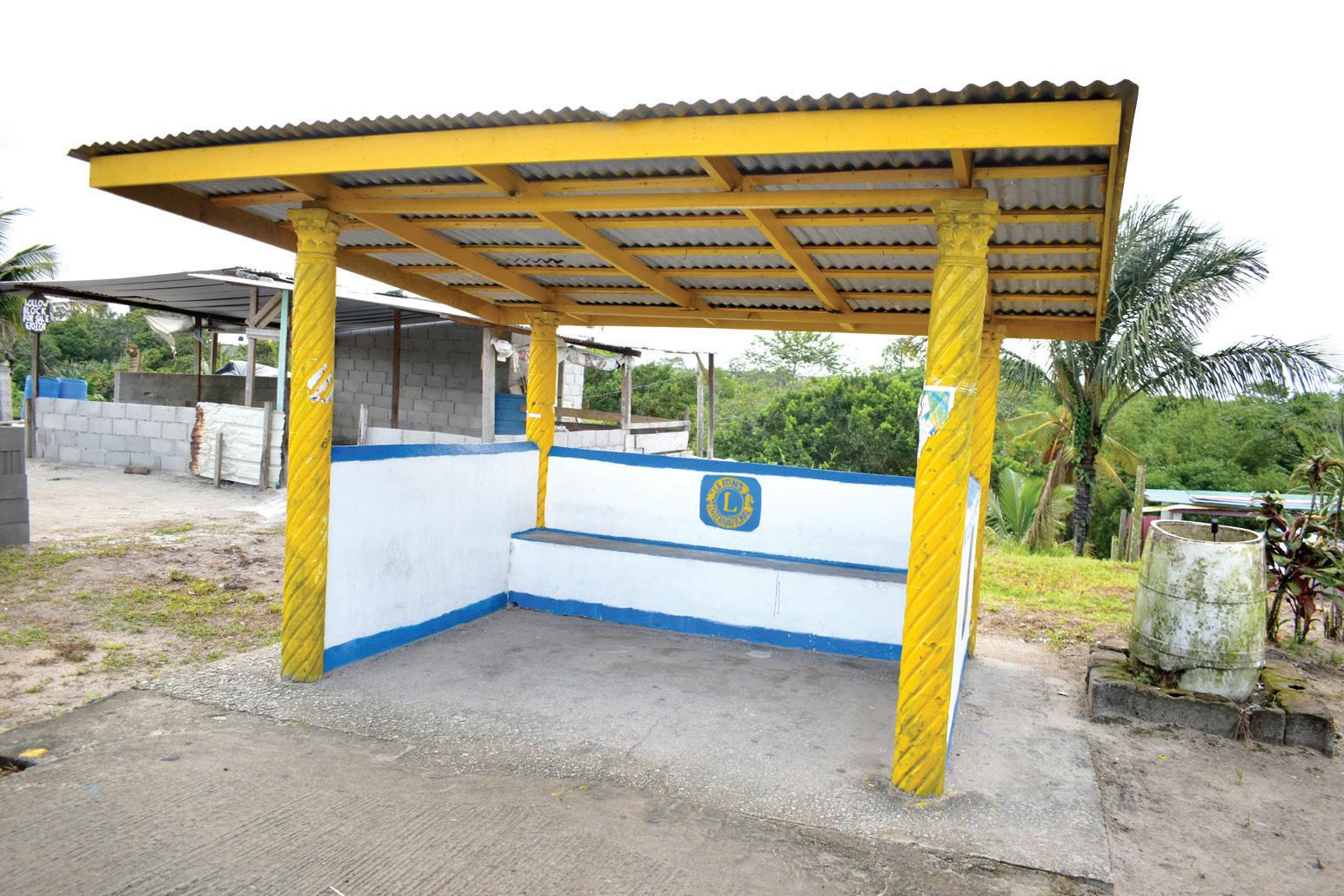
Ali added that she is the mother of four children who reside with her first husband at Cotton Tree, West Coast

visited she was in the pro cess of preparing a meal of cook up rice with pot roasted chicken and was about to go get some water from the well station nearby.
and so far, she has blended in very well with the locals.
The 35-year-old told the Pepperpot Magazine that she is living with her spouse, who is from the village and he is employed at Bounty Farm,
Berbice.
So far, life has been fair and she is adjusting to the valley life where people exist like a large family and they look out for each other.
That day, when the team
Shondell Crandon, the stay-at-home mother Shondell Crandon lives in an extended family setting with her children, elders and other relatives at Hyde Park, in the valley section and is
originally from Belladrum, West Coast Berbice.
The 46-year-old reported that she is unemployed and it is difficult to maintain a large family due to the high cost of living.
The mother of six stated that there aren’t many jobs
in that area, but she is trying to cope with the increased prices of food items.
Crandon is from Bel ladrum Village, West Coast Berbice and relocated to Hyde Park, in the valley, 13 years ago when her family moved there.
She left her home village in search of work. She was looking for work with the army as a civilian but was unsuccessful and ended up staying there.
AYANA John, a mother of one, was born and raised in Hyde Park, Timehri, and is employed at the Cheddi Jagan International Air port (CJIA) as an Aviation Officer.

The good part of the job is being close to home, and not having a long commute
their home.
As such, they have to use buckets to fetch water from the nearby well station.
She said that though they have two water wells in the area, there has been little or no water for the longest time, and would like to have the water woes rectified at the earliest opportunity.
John pointed out that
which is not far from the village in the valley.
John explained that back then, her grandfather was liv ing all the way up in Berbice, which made commuting dif ficult for him, so he decided to clear the bushes at Hyde Park, built a little house, and began living there to be close to his place of work.
Her grandfather, who is
is basically downhill and very steep.
John said she would like to move out of the area be cause of some issues, since it is thickly populated.
the army.
He said that most of the people in Hyde Park are re lated by blood, because when they settled there, they also brought along other relatives,
tence many years ago, it was undeveloped.
Today, that community still lacks basic infrastruc ture due to its location in the valley.

Wilson is a miner, but has
is quite convenient for John.
The 24-year-old told the Pepperpot Magazine that they had a shop years ago, but it has since been closed down. Due to her grandfather being 70 years old, he quit running the business.
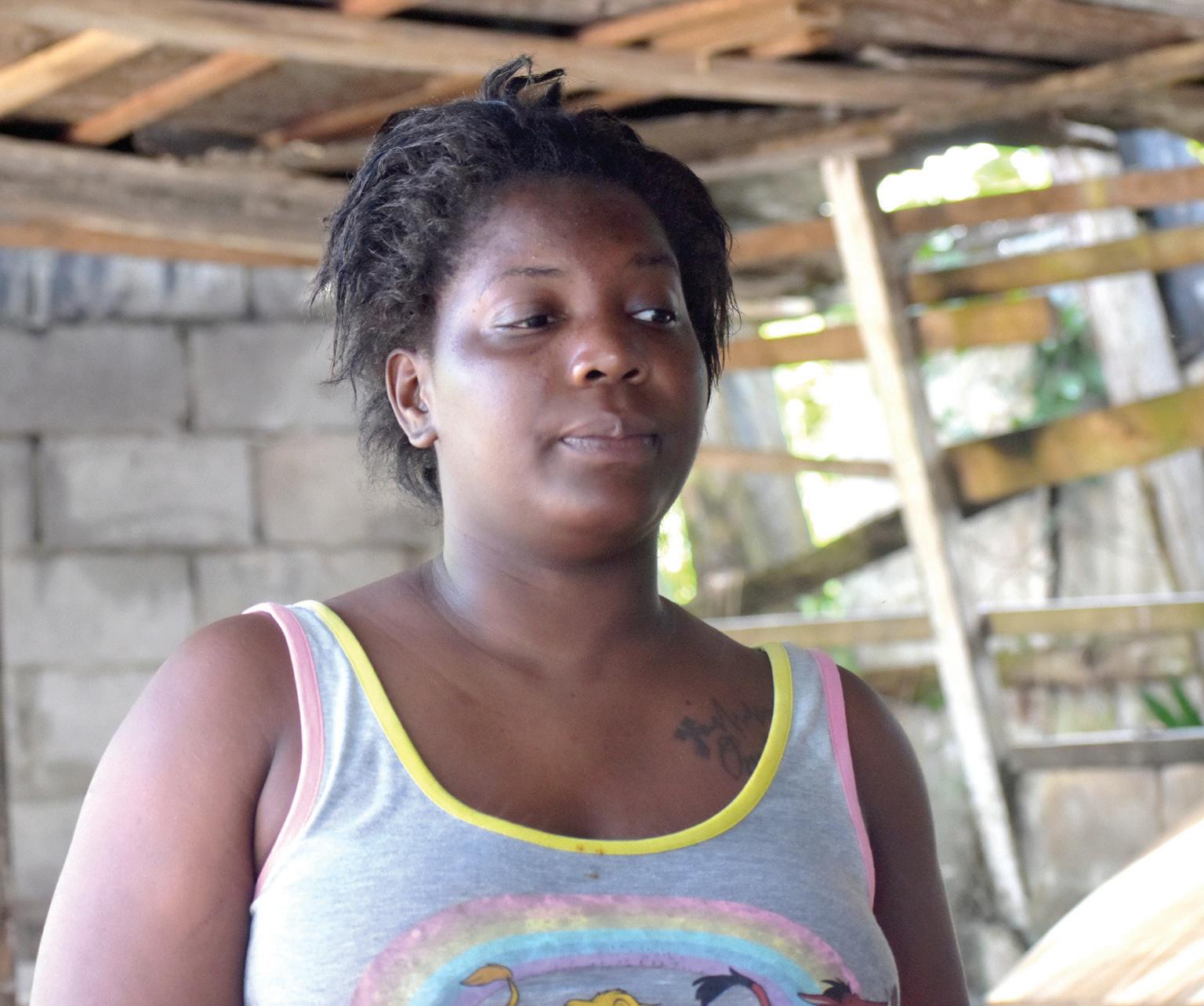
John has a six-year-old son, but is also tasked with taking care of her nine sib lings (four brothers and five sisters) since their father left home, and their mother is in the hinterland working.
John said that life is con sidered fair in that section of Timehri, but for the past five months, they have a pota ble-water issue, and water is not running from the taps at
they usually depend on rain fall for water, or have to fetch water from the well station.
She stated that even though they are not getting water, they have been receiv ing water bills every month.
John related that her grandfather was the first settler at Hyde Park, having settled on the same spot on which they reside today. She recalled that he was one of the men that came looking for work, and settled in the village which was uninhab ited at the time.
She stated that he was employed as a soldier at Base Camp Stephenson,

well-known in the area, had served in the Guyana De fence Force (GDF) for many years until he retired. Better known as Cassava Joe, the valley was given its alternate name in his honour as the first settler.
Unfortunately, on that particular day when the Pep perpot Magazine team paid the community a visit, Errol Alphonso Wilson was not at home, since he was unwell and had journeyed to the city to see a specialist doctor.
In Hyde Park, in the val ley, there are no roads ex cept for footpaths and small tracks leading to houses and all around the village, which
Kurt Wilson is also a res ident of Hyde Park, Timehri, who was making his way out of the village to go out that day when the team visited, but decided to stop for a bit to have a chat.

The 40-year-old told the Pepperpot Magazine that he is originally from Berbice, but relocated there with his family when his father joined
thereby making it a tight-knit community.
Wilson recalled that about nine years ago, the village was regularised, so while they were able to ben efit from electricity, potable water and Internet service, there are no all-weather roads or landline phones.
He said that before the village was regularised, it was a squatting area, and even though it was in exis
left the interior to be closer to home, and now works as a construction worker.
He explained that while most people in the village are soldiers, some work at the airport, and others at Bounty Farm and Gafoors at Land of Canaan.
Wilson is related to Er rol Alphonso Wilson, called Cassava Joe.
 By Michel Outridge
By Michel Outridge
DONNA Barker is a resi dent of Hyde Park, Timehri Valley and in that part of the village it is very clean and well-kept, since she is a home-maker, who does her bit to take care of the environment.
Even though her house is the last on that side, she has a lovely garden and some trees to complement the surround ings and is a stay-at-home mother of one, who is unwell and has to undergo surgery.
The 45-year-old told the Pepperpot Magazine that life in that section of the valley is good and she is making the most of it despite some challenges in not having a road and other things.
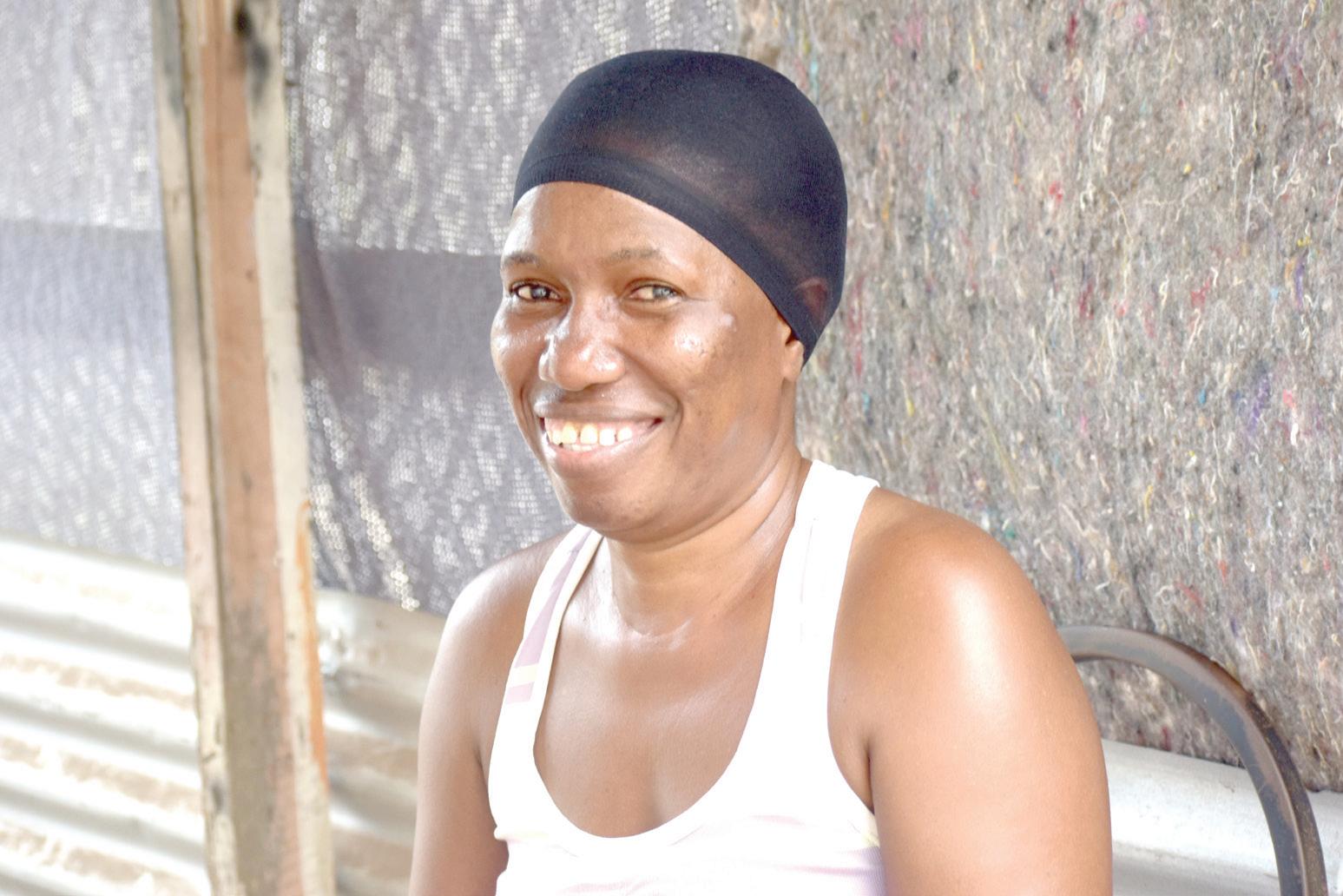
Barker stated that she is originally from the city, but relocated to Hyde Park Valley 45 years ago with her parents and siblings.
The mother of one stated
that her grown son is residing with her and he would assist her with the chores. That day when the team visited, he was cooking a pot of curried pork which had a strong aroma that gave off a sense of it being delicious.
The young man in ques tion is Ryan Barker, a barber, who works from home and has a makeshift barber shop at the side of his house.
The 25-year-old is hop ing to open his own small business in the near future at his home and has a positive outlook on life in general, an excellent quality for progres sion in life.
Barker stated that she is surrounded by relatives, so it is a safe place to reside and they co-exist in peace and they have a lot to be thankful for.
“I am accustomed to life here and it is not that bad that you will want to move out, but we are hoping for the best
because this is what we call home,” she said.
Barker enjoys the simpler things in life such as going to the creek, which is about five minutes of walking from her home, to take a dip in the cool water or wash.
They store rainwater for drinking and cooking purposes.
The team also spoke with Dev Singh, the former Chairman of the Soesdyke Neighbourhood Democratic Council (NDC), who reported that Hyde Park Valley is still in various forms of being regularised.
He explained that Timehri began taking shape when the Atkinson Air Field was estab lished following World War 11 in 1945 at High Hill, then the army base was construct ed and more people began visiting.
Singh stated that in
1976, Ideal, the maker of refrigerators and then Col gate/Palmolive opened their businesses in Timehri as well and things started to boom with more people moving in the community looking for work.
He added that a lot of people from Corentyne and East Berbice came to Timehri in those days for work and some settled there and even tually, their families joined them. That’s how the valley was inhabited.
Singh told the Pepper pot Magazine that the NDC covers from Madewini to

Coverden, but they have a sub-office in Timehri and some work was done in the valley over the years to bring it to an acceptable standard for the locals.
He reported that Timehri became even more populat ed when Barama Company started its operations there, and also even more people came when the Cheddi Jagan International Airport (CJIA) expansion project started years ago.
Singh stated that many people came from all over the country and settled in Timeh ri, most of whom were in the
army back then and brought along their relatives and im mediate family members.
The Soesdyke resident told the Pepperpot Magazine that he was with the Soes dyke NDC for two years before he started his own small business from his home as a Justice of Peace of oaths and affidavits and also has a consultancy firm.
He resides on the Soes dyke Public Road near the mandir and specialises in all document-related work, including compliances and taxes.
FROM PAGE V
port and in both the private and public sectors, as well as self-employed folk.
The village has a com munity centre located on the main road, and the nearest schools are about a five-min ute drive away.
All shopping is done at the Junction or in the city and
small items are bought within the community, which has a few shops.
The community has a few mechanic shops, bars, and a Mandir and in this section there are many houses with many extended families liv ing close to each other with unfenced yards.
There are no all-weather roads in this part of Hyde
Park, only small tracks and footpaths that are steep and down in the valley. It is somewhat like a maze; if you do not know where you are heading, it is easy to get lost.
To access other sections of this village in the val ley, you have to go via the main public road and then go through small tracks which lead to various houses.
The locals have access to electricity, potable-water supply, which is unreliable and of a trench-water quality.
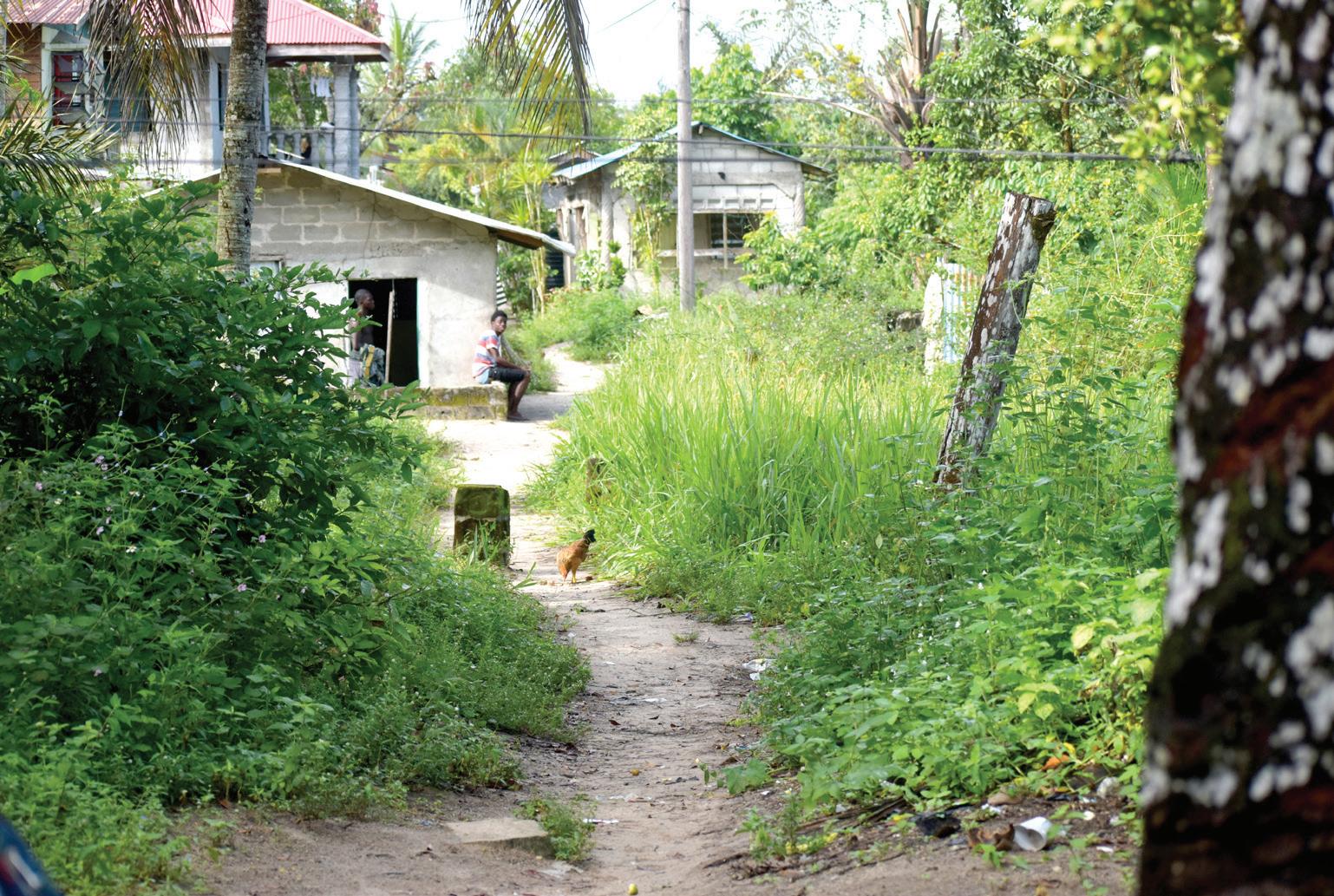

There are no internet ser vices except for cellphones and no landlines in part of Hyde Park.
There is no drainage sys tem in the valley and there is

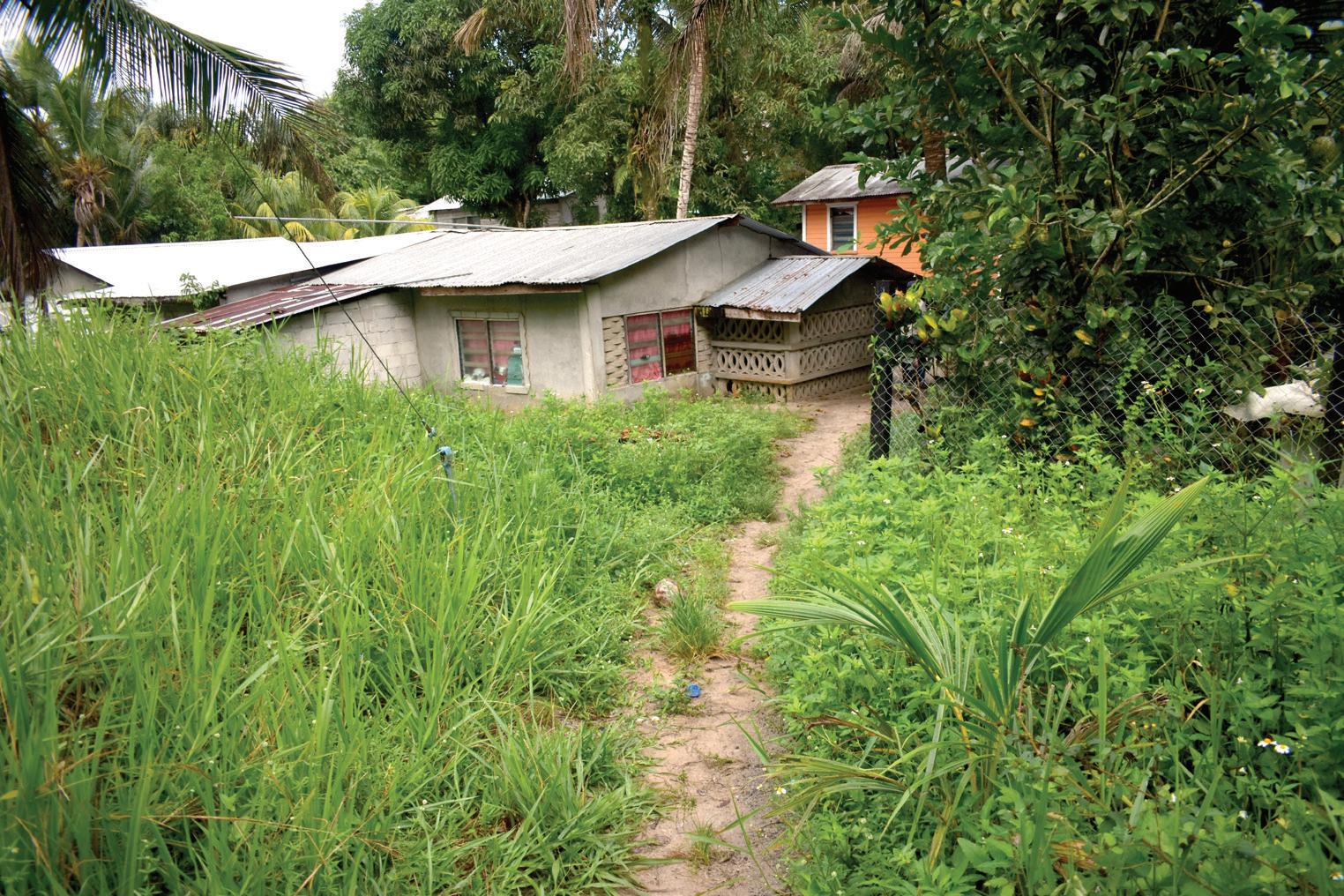
evidence of erosion.
It is a jungle-like village with many trees, brushes and plants, making it very green.

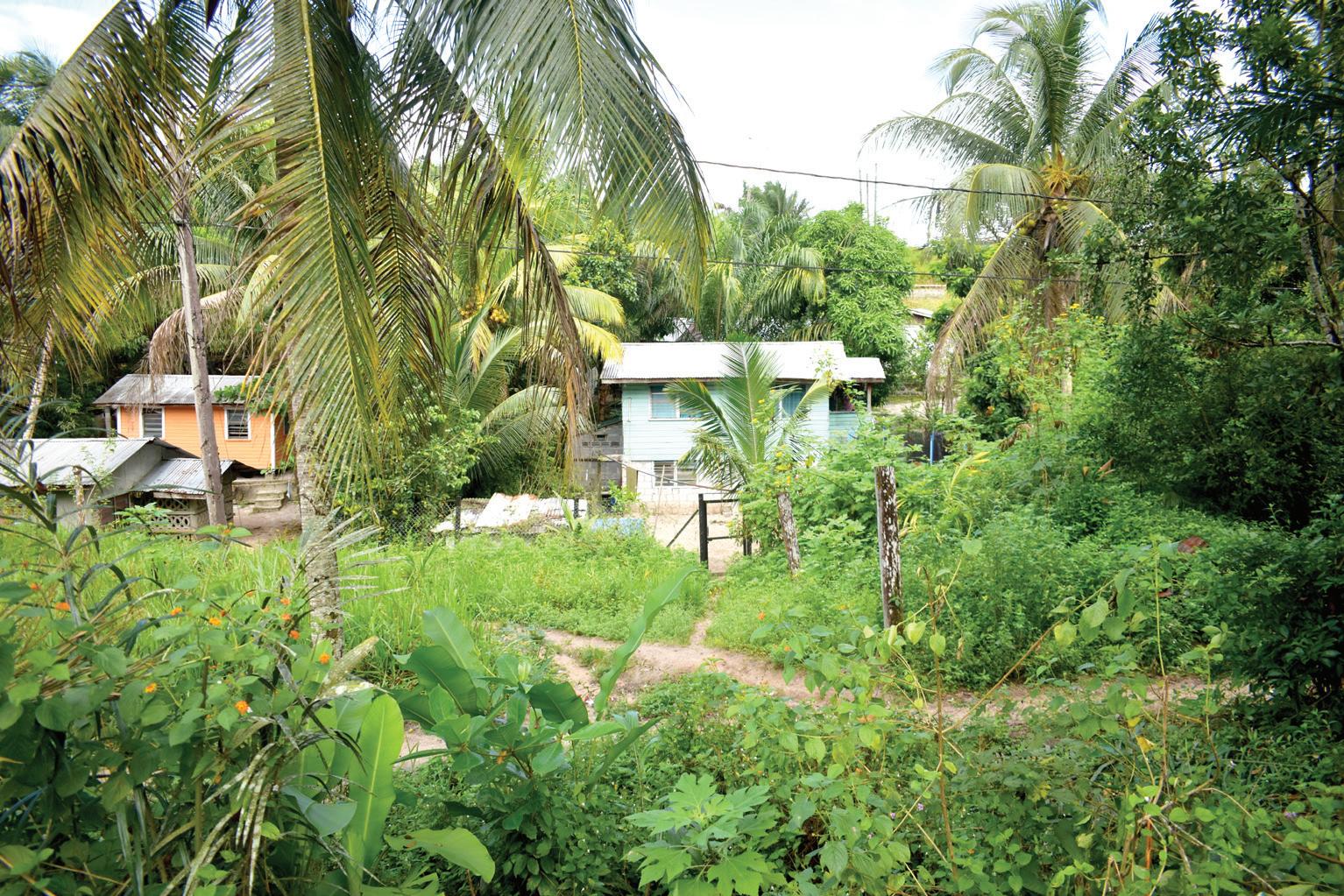
The place is peaceful and quite cool in the night, but very hot in the day due to the sandy soil composition.
All government facilities are located at central Timehri
where there are schools, a health centre and other ser vices which are accessible to residents.
At the Junction, there is a market and small to large businesses, including gas stations and other private facilities.
THE police found the area where Brian had turned off the road and a piece of the girl’s torn clothing, but there was no more indication she was anywhere around there.
“They must have taken me somewhere else,” Preity concluded, “Maa,” she prayed, “I need you now, more than any other time in my life. Please don’t let me die here.”
The detectives continued to talk to her as their search continued, “Units are spread along the highway,” she was reassured, “Now, I want you to listen carefully and tell us what you hear around you, anything.”
There was silence for a while then she said, “I can hear heavy vehicles driving a distance away and I feel a slight shudder as they pass.”
“That’s got to be a turn-off somewhere from the high way,” The detective said with confidence, “That’s where they probably dumped the car.”
“My phone battery is dying,” she said, fear now creep ing in her voice, “and the air is becoming less. Let me talk to my mom, please.”

“Mom,” she said, her voice breaking, “Just in case---”

“No, baby,” her mother interrupted her, “We will find you.”
Preity closed her eyes, her breathing now very slowly and when she reopened her eyes, through the haze of her tears, she saw a lone bright star in that little part of the sky she could see through the rock crevice.

“I can see a lone star, mom.”
The hours were going by as the car the mother was in that was following the police vehicles, approached the road to the second turn-off and she saw a lone bright star, like a guiding light.
“Is this it?” she wondered, “Is this the divine help that will guide me to my daughter?”
She dialled Preity’s phone but there was no answer.
The phone battery had died!
The terrain way off the road was rough, and the search parties set off on foot in different directions.
“She’s got to be here,” the mother cried, her anxiety rising. The minutes she waited to hear a shout from the search party were tortuous, and when the shout came to a long while after that they found her, the mother broke
down, sinking onto her knees.
Her hands clasped to the Heavens, “Thank you so much, Maa.”
Preity was barely alive when they brought her up, her clothes torn, her skin bruised and bloody.
“Mom,” was the only word she could say, as her mother sobbing uncontrolla bly, hugged her.
Not until she was in the special care of doctors, under police protection and surrounded by family and friends, did the detective feel it was safe to give the media the story and the phone recordings, a story that hit the nation like a freak storm. The expres sions of shock, dismay, and anger flooded in from all levels of society as they gave support to this brave girl who stayed strong and held on to faith, to stay alive. Dravid recovered from his head injury and was taken overseas for further treat ment after giving a damn ing testimony against his brother.
“It’s time to be brave,” he said, “to be a man.”
Preity stayed at home, the place she felt safer, to recover mentally. Messages, cards, and gifts continued to be sent to her home from well-wishers for her bravery. One gift from an overseas women’s group was a surprise.
It was a nice little car.
“So, you don’t have to ride in anyone else’s car again.”
They said.
Preity laughed, her heart filled with thanks, “This is so nice, thank you.”
In her private moments, she offered her prayers to Mother Saraswati, as she always did, “Thank you, Dear Maa, my faith in you won the battle to survive and to live for a new day.”
SOME call her Mrs. Abdul. Some call her Mama or Mummy; others call her an Entrepreneur, Philanthro pist, an Angel or an Icon. It was an honour to meet people who are fulfilling their purpose and loving it. On my journey, some of the most meaningful relation ships were the connection from the heart, and one such connection happened in Lagos, Nigeria.
I was introduced to this phenomenal woman who has all the names above. Pastor Nath Ayo Aiyedogbon con nected us, and there was an instant connection at our first dinner. Her story fascinated me at how she navigated the business world to become an iconic figure in Nigeria. I was even more fascinated by how and why she founded the Compassion Care Home; her story reminded me of our plans, and the plans God has for our lives. She explained that God had given her a vision to establish a home for boys, but she was not obedient for years, until she was given an ultimatum. She fell ill, and God told her He will take her home if she did not obey His command. It is a big blessing that she decided to do God’s work, because it has made a tremendous dif ference in many lives.
“It’s been God all this
while. A few years ago, I was in the streets struggling for peanuts to survive. My dreams were fading away, and my future was at stake. I had no hope; all I could do was walk around in the streets of Lagos and sleep in the ghetto where there’s no future. I thought I was going to end up like the el derly people in the ghetto, but God intervened through my Spiritual Mother, Evang Mojijola Abdul. Today, I am becoming the studied musi cian I have always wanted to be. I am presently a student at the Peter King College of Music. Glory be to God! I could see my future becom ing a brighter one, all through you, Mummy. You are the best thing that has ever hap pened to me; you have made an impact on my life, and the lives of my brothers. We love you so much, Mummy.”
--Adeshola Ogundeyi Baron
I had the opportunity to visit one of the Homes hours before leaving Lagos, and I interacted with the young men. We danced, prayed and shared stories. I shared my story of growing up in a village, now a town called Bartica, and a bit about never giving up. I presented a ‘tab let’ to Adeniran Oluwaseun Ariyo, popularly called ‘Chef-Zerad’ Chef, who re cently graduated, and was sent to the other Home for a young man who had received three trophies that day for his excellence in sports. The
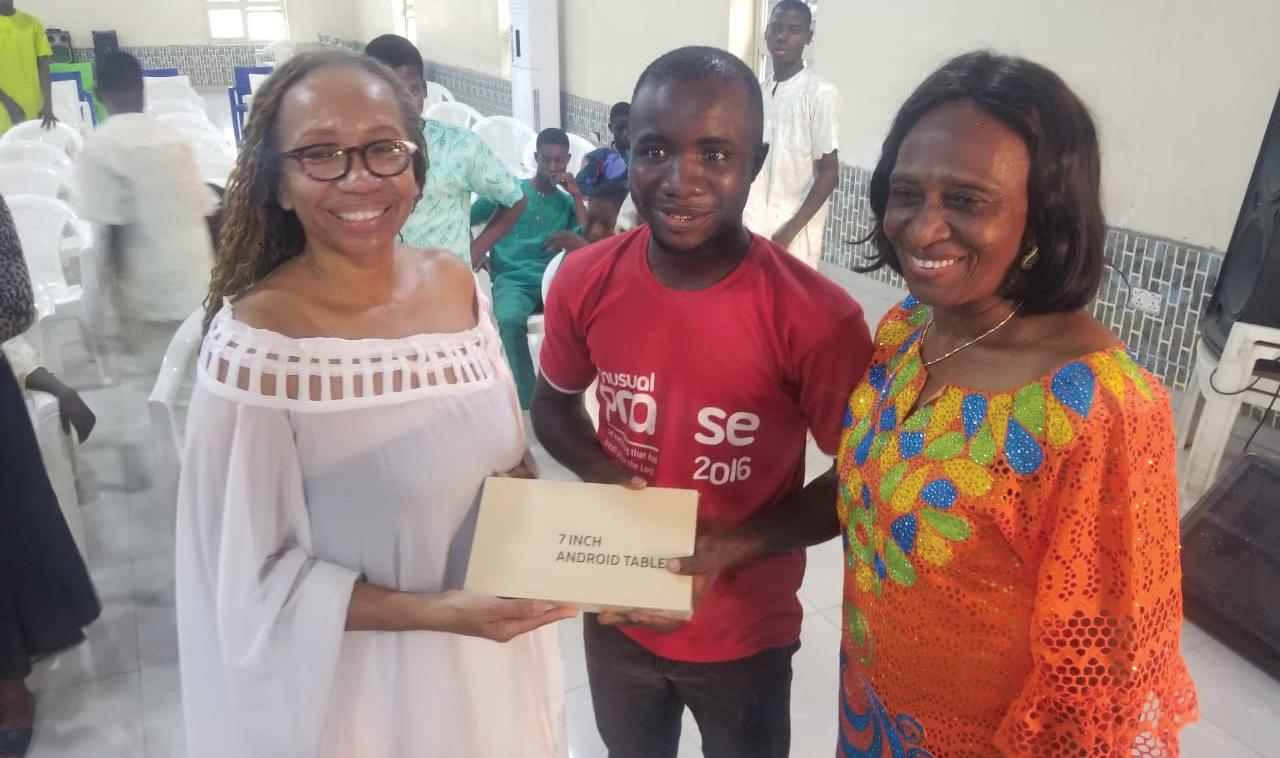
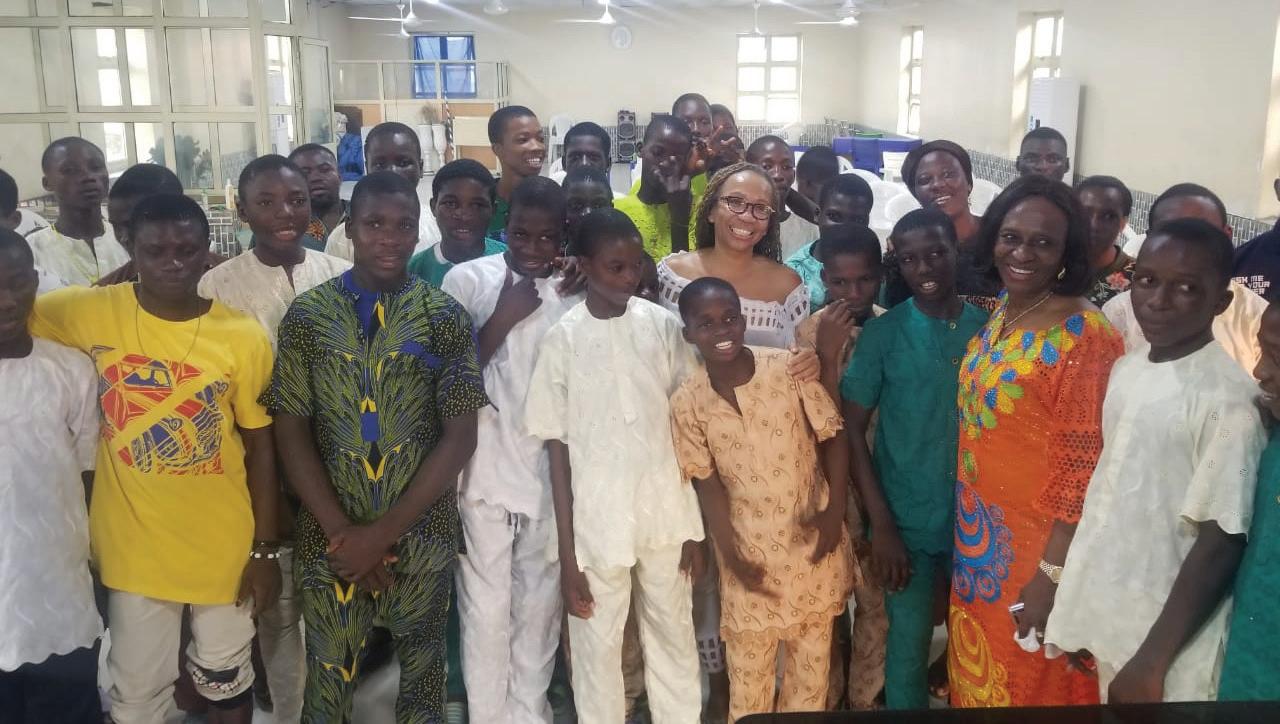
first thing he said was, “This ‘tablet’ will not only serve me, but all the others here.” That was impressive, because it shows the brotherhood at COMPASSION.
He went on to share his story. “I am one of the first set of ‘street boys’ of the ‘Almighty God Compassion Care Home’. I was taken from the then Kuramo Beach in Victoria Island (Lagos State, Nigeria), alongside over 90 other ‘street boys’
in
for the establishment of an outstanding five-star restau rant soon. I give my Father, Lord God Almighty Jehovah, all the glory for all His great works of transformation, reformation, rehabilitation, recreation, sanctification, purification, consecration, salvation, redemption, deliv erance and more that might even be too much for you to read. I was a ‘street boy’; I was a scavenger; I was a beg gar; I was a vagabond. Once upon a time, I was dream less, hopeless, homeless and goalless, but, today, my story has changed through the work of God Almighty in my life. Today, I am a source of motivation and inspiration for so many people, because I am a subject of joy. My stories and my pasts are not written on my face, so you will doubt me when you see me telling my stories. Thank you very much for coming from your country to visit us in our Home. Our Father Lord God Almighty Jehovah loves you. We love you, and I love you too, Ma. Thank you very much for the precious gift of an android ‘Tablet’ you gave to me; I am really grateful. May God Almighty Jehovah bless you,

the airport, and I appreciated that more than words could express. It was a 12-hour flight, and I had time to think about many things. She wel comed me to her home in Lagos without hesitation, after my pastor introduced us. She assigned a driver to me, and shared her personal chef with me. I visited her office and factory, and observed the way she related to her employees, and the way they related to her. I even experienced the efficient way she handled a crisis that was emerging. I learnt a lot from her in a few days, and the biggest lesson is to continue to trust God, and don’t ever stop contributing to humanity. Profits from the business she founded, Mojec International Ltd., fund the two Homes, and I pray more people will take a page out of her book.
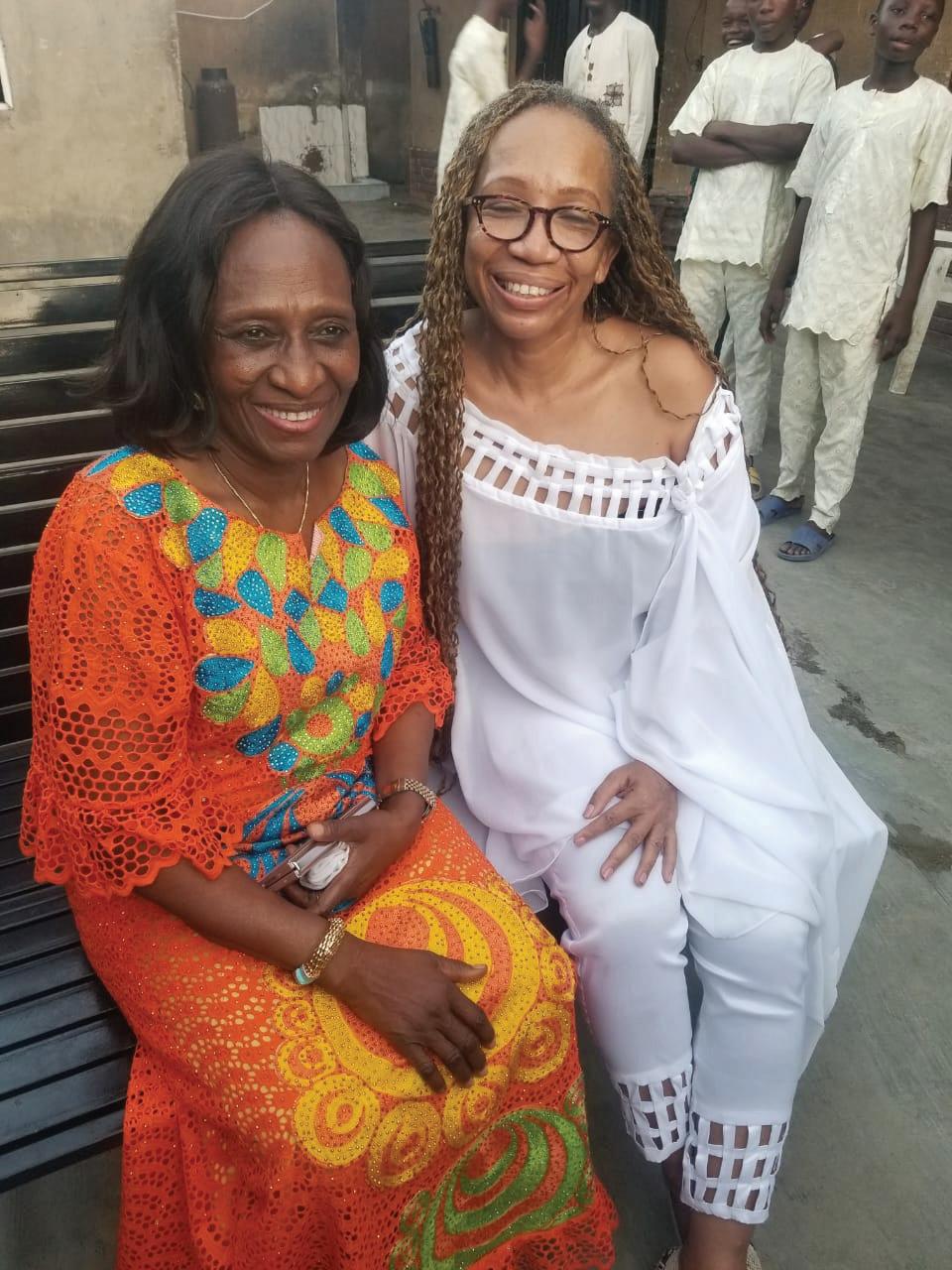
I feel like I have found another mother, but there is a bonus in this find, be cause I found another sister, the beautiful and brilliant Chantelle Abdul, who is the CEO of Mojec Interna tional Ltd., and a philan thropist like her mom. It will take another column to talk about our connection.
(Mummy), Lady Evangelist Mojisola Abdul. Today, I am a graduate of Obafemi Awolowo University, the best Federal University here in Nigeria, as well as a Chef, working, learning and walk ing alongside the Holy Spirit
and all your families, friends, and all your entire country.”
I had dinner with Mrs. Abdul after leaving home, then to the airport. She was now Mama to me, too. She was obviously tired, but de cided to accompany me to
I strongly believe that my life will never be the same after visiting the continent of Africa. I may just start my next book, as we cele brate this journey called life BEYOND THE RUNWAY.
I HAVE written several articles over the past years on the subject of expanding the ability to earn that would involve considered sections of the masses that may have been taken for granted be fore. ‘We’, in this context ‘Guy anese’, have not come to terms with the methodology of how development can be accelerated from community to community, based on needs and the possible interest development of what always is a diverse collection of humanity and talents.
But this can only happen on the basis of gathering the expertise of said local talents that are demon strating, by independent efforts, the skill to fill simple import niches that are good enough, with adjustments here and there that can be a sufficient parallel choice.
We haven’t yet moved away from the structures of colonialism. Tucking emotions away, we have to realise, through clinical observation, what the ‘Aces’ were that the colonisers, apart from weapons and mental and phys ical brutality, invested against us. What more did they throw on the table? One answer would be products that exceeded in durability against anything else that stood on the shelf in competition. Even among themselves, that competition was, and still is, evident.
In Guyana as well as in most other post-colonial States, the drive to explore the borders of potential within is viewed from a distance. The ‘Guild’ structures were never formed; no authority has existed to impose or even encourage, at any level, that local enthusiasm across social and political fences towards in-house standards that can also be exported towards creating a niche within any strata of economic representation that is of ‘Guyanese’.
Both Jamaica and Trinidad have transcended tourism with their Reggae music, Calypso, and Steel Band ‘brands’ and do benefit their populations and national image. But more than that, they do have product lines on our shelves that can hold up to scrutiny, however, we must extend beyond our traditional group of standard export quality business, in our case, owned by Guyanese. This is important to recognise as
follows: Some years ago, I had a client who wanted an ‘ad’ placed in a Jamaican newspaper. To make the payment, I was instructed to send the money to Canada, but I then realised that the papers were not locally owned. As far as I knew, the local papers, though in one case had received a hefty grant from a foreign nation that would have come with stip ulations, were all local, though they, too, have their stories.


Foreign investment is not a negative thing in a small country, if local ownership is based on national stipula tions that are conceptualised towards necessary levels of protection. This means that the local laws must provide all necessary standard provisions in expectation of what may be high-handedly asserted by a more astute investor, if such preventions are not available. Taking into consideration that the roots of business is profit, the origins of profit can be centered on ‘greed’ like the origins of colonisation.

I’ve learnt years ago that no Art-based production can be sensibly registered in Guyana, with the intention that it makes it safe from local or external piracy or plagiarism. Thus, many of us are forced to use the Library of Congress, though this does not frighten the more aggressive of creative thieves. But it can benefit you in the long-run, if they make money and you can attract a good lawyer. One of the areas of
developing any product line rests with expanding the aware ness of the fact that quality control is a crucial ingredient that, if not enforced, your product can have a very short life on the market, whether it’s a baseball cap, clothes hanger, pillowcase or wooden in-and-out tray.
Recently, a friend came home from England for a hol iday. He works with a company that tests the durability of new products; let’s say doors. They place products under rigid tests to verify what they can endure. This is the kind of product production we’re up against; we’re not there yet. Our agri-produce have had bad reports over pesticides and the current dangerous use of ‘artificial ripening’ that is also causing tensions locally towards our own farm products. We have a far way to go, and may need laws to bring some people in line. With respect to the colonising First World, our relationship is far from over. For instance, in Art, support tools for commercial usage that are dependable, our choices are German, English and American products, Swiss drawing pencils etc.
But when the talent is homegrown and can compete, earn standard income, we then are building bridges, if at the end of the day, others can be inspired in any of the areas mentioned, then the citizenry will become bet ter composed, and with their own negotiating finance, enough to explore new local products. Then and only then we’re on our way.



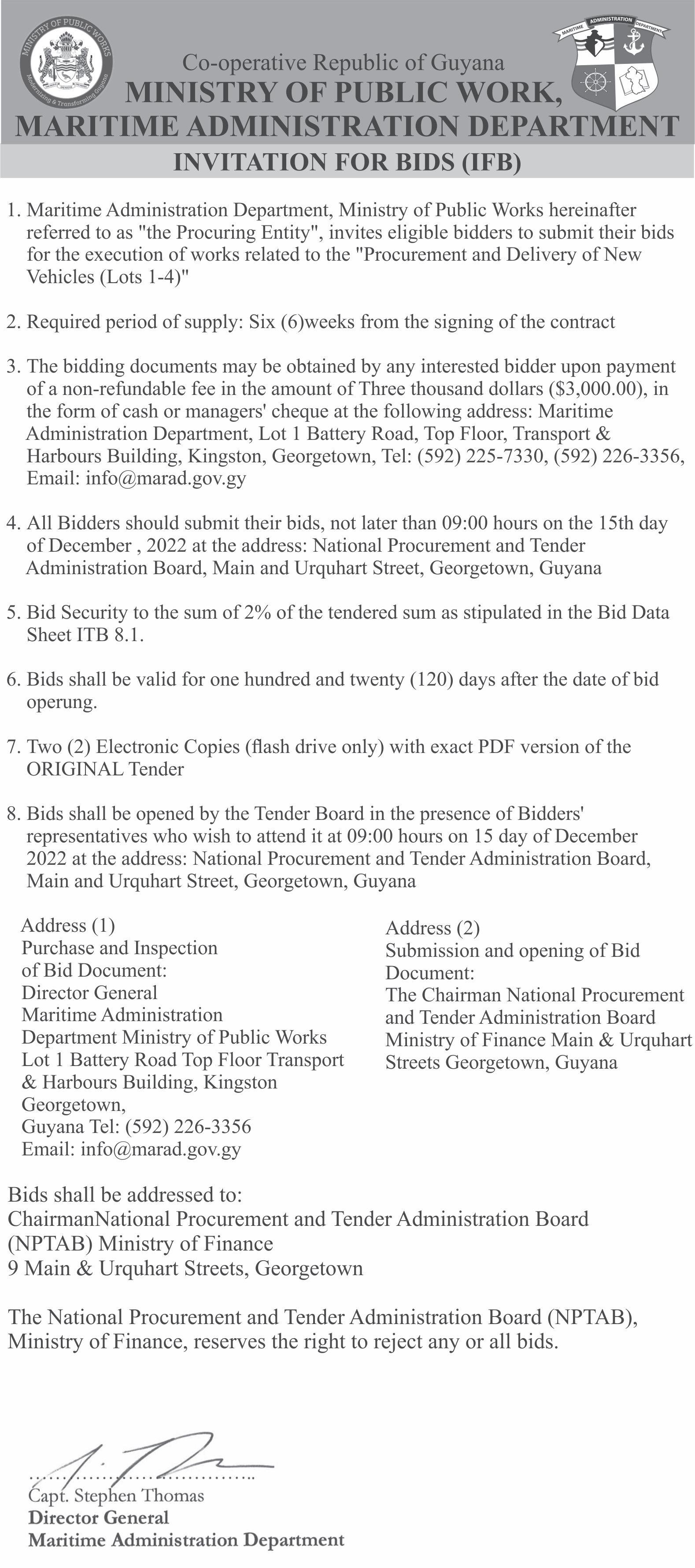
WITH the holiday season coming up, I think discuss ing stress and how to best handle it is vital. While many look forward to the holidays, it does come with many expenses, socializing, alcohol and substance use and many other triggers for mental health issues.
Even though we all expe rience grave stress, it’s one of those words we use so of ten but is difficult to define.
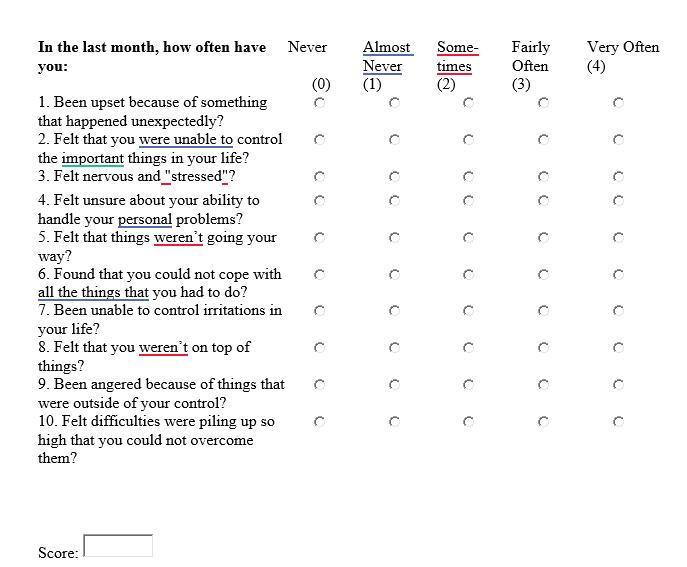
Stress is mental, physical or emotional strain resulting from demanding, unwanted or threatening circumstanc es. It’s our body reacting to

things we don’t like or that make us uncomfortable.
Think about what physical ly happens – your nervous system releases stress hor mones such as adrenaline and cortisol, making your heart race, blood pressure rise, our muscles tighten, and breathing becomes difficult. When it comes to our minds, stress is our perception of what’s happening.

Many things cause stress, which are known as ‘stressors.’ These are things such as high-de mand jobs, school, rela tionship problems, major
life changes and financial problems. However, are the things that cause stress always negative? No. Wed dings or having a baby are positive, but can cause ma jor stress. Therefore, the key to good mental health is not to avoid stress (as that’s impossible) but to figure out how to healthily deal with it.
How do we begin doing this? The key is finding out what exactly is stressful for you. For example, I find traffic highly stressful, even if I am not in a rush to go anywhere. However, I have
friends who find that time alone to sit and listen to music is very relaxing. Ob viously, those friends hate being in the car with me during rush hour. My point is, not everyone is stressed by the same factors. So, what stresses you out? And why is it important to know this? It’s important as stress can
such as loss of productivity (which makes it hard to re main employed or in school), procrastination, heavy sub stance use, and isolation. How many of you shut ev eryone out and just need to be alone after a stressful day?
Emotionally, stress can cause high anxiety, irrita

whereby we worry about things that we have zero control over – it almost feels as if we are worrying for no reason. For example, if you have a function to go to and you worry about potentially fighting with your partner at this party. There is envi ronmental stress which is caused by what’s going on
lead to a series of physical and mental issues. Daily stress can disturb every sys tem in your body.
Stress also results in se rious behavioural symptoms
bility, impatience, overreac tions, depression and suicid al thoughts.
There are a few types of stress that we must deal with. There is internal stress,
around you. For example, I get stressed easily when in crowds and around a lot of noise. Finally, there is fa
FROM PAGE XVI
tigue and overwork stress, which is long-term and builds up over time. For example, constantly working without taking any breaks or holidays.
Which kind of stress are you experiencing? Or is it all?
What are some unhealthy ways to deal with stress? Drinking, smoking, overeating, lashing out at other people or maybe isolating ourselves. We are all very aware and have possibly even tried these options? Have they truly worked? My guess would be no.

I hope by now you all know the first step to resolving anything. It is to identify the exact root of the problem. Figure out what causes your stress- is it avoidable? A stress journal helps with this. Write down whenever you feel stressed, the cause, your response to it, etc. This and this alone will help you in finding solutions and alternatives.
If you are stressed because you have a lot to do, make an actual list of these things and tick them off one by one as you are doing them. Visual progression automatically lowers stress and increases productivity.
Physical activity is always a great onego to the gym -or better yet, pick up a team sport as being around a positive social group naturally decreases stress. Adopt a creative hobby such as painting or danc ing. I actually use adult colouring books (yes! Those exist) when I’m stressed; they are very helpful.
Eat well- food has a major effect on our mood.
Work on your sense of control, self-esteem, attitude and overall outlook on life. These are very important in lowering stress. When one is confident, positive and hopeful, challenges, set backs and disappointments are easier to handle. Know your stuff! People get highly stressed before work presentations/ speeches and exams. Preparation goes a long way in how we feel.
Try relaxation techniques such as breathing exercises, meditation or yoga. These are also very effective. Get plenty of sleep- replenish yourself well.
Finally, the best advice I can give is to accept the things you cannot change. This advice is cliché for a reason. There are so many things in life that are beyond our control. What is important however, is how we view the situation and more importantly, how we react to them.
Are you not sure if you’re unhealthily stressed? Take the universal stressed test in the photo!
Bottom of Form
Top of Form
Bottom of Form
Interpreting the score:
Add up all the numbers associated with your response. For example, if your answer to question 1 is never, you won’t add any points. If you answers to questions 2 and three are ‘almost never’ and ‘sometimes’, you will add 1 plus 2 and so on for the rest of the questions.
Score Your stress level
0 to 10
Below average. Congratulations, you seem to be handling life’s stressors well at the moment.
11 to 14
Average. Your life is far from stress-free, so now is the time to learn how to reduce your stress to healthier levels.
15 to 18
Medium-High. You may not realize how much stress is already affecting your mood, productivity, and relationships.
19 +
High. You’re experiencing high levels of stress. The higher your score, the more damage stress is doing to your mind, body, and behaviour.


This questionnaire is not intended to replace professional diagnosis.
Adapted from: Perceived Stress Scale - Sheldon Cohen How stressed are you? If your score was high, I’d hope you all take the necessary steps that I’ve outlined that will help lower your stress.
Thank you for reading and please send in any topics to caitlinvieira@gmail.com.
WE are a few weeks away from the advent of the tra ditional Guyanese Christmas season. The traditional Christmas season was characterised by its house-clean ing, renewal of furniture, cake-baking, “setting” of fruit wines such as jamoon and drinks such as ginger beer and sorrel; shops colourfully decorated and stocked with Christmas goods, Christmas music everywhere and children spending the last weeks of the Christmas term transported into the dreamland of Christmas. The sea son’s centrepiece was the hallowed custom of gift-giving of locally produced cakes, fruits, jams and jellies and other preserves, wines, fruit drinks, and Amerindian handicraft. This was a time when society became envel oped in a nervous expectation and an infectious feeling of goodwill towards all.
From the 1960s, this traditional Guy anese Christmas season was assailed and nearly destroyed except for a few fac ets, which stubborn ly survived. The main forces which assailed Christmas were the country’s economic collapse when the popula tion fell into disarray with survival being its main concern; the massive emigra tion of all classes, which fragmented the society; and the bizarre policy of the government of the time of “de-emphasising Christmas.” The customs of sincere greetings of goodwill towards all and gift-giving could not be effaced and have survived until now that those negative anti-Christmas forces have faded away and Guyanese society has embarked upon a renaissance.
As the economy began to recover and grow in the 1990s, goods began to be imported, and people began to use import ed items as gifts, since such was regarded as welcome after the dearth of such items for over two decades. Unfortunately, this trend came to exclude locally produced goods of equal or superior quality.


This year 2022 is an annus mirabilis for, with oil reve nues, the economy has been prospering and material life has been improving, but we have not been recapturing the loss of the cultural and spiritual aspects of life with the same speed as the material. Giving locally produced goods as Christmas gifts could help revive some of the beautiful traditions






GROWING up, I was al ways the child who was great with words. In the same breath, I was and still am terrible at anything re lating to numbers. Ironically enough, I’m an entrepre neur, but we’ll save that suc cess story for a next column piece. I remember when I was writing examinations, one exam always gave me the jitters — Mathematics! I can embarrassingly yet freely speak for myself when I say I’ve had cold sweats, migraines, and even night
self, “why?” After several years, I think I finally got my answer this week when someone introduced me to the concept of “dyscalculia.”
Unlike Dyslexia, Dyscal culia isn’t well known or understood at many levels of education and learning. In fact, even as a trained social worker—I was unaware of such a term until now. Dyscal culia or Mathematics learning disability is when someone has a challenge or problem with learning mathematics. Just like dyslexia, a common
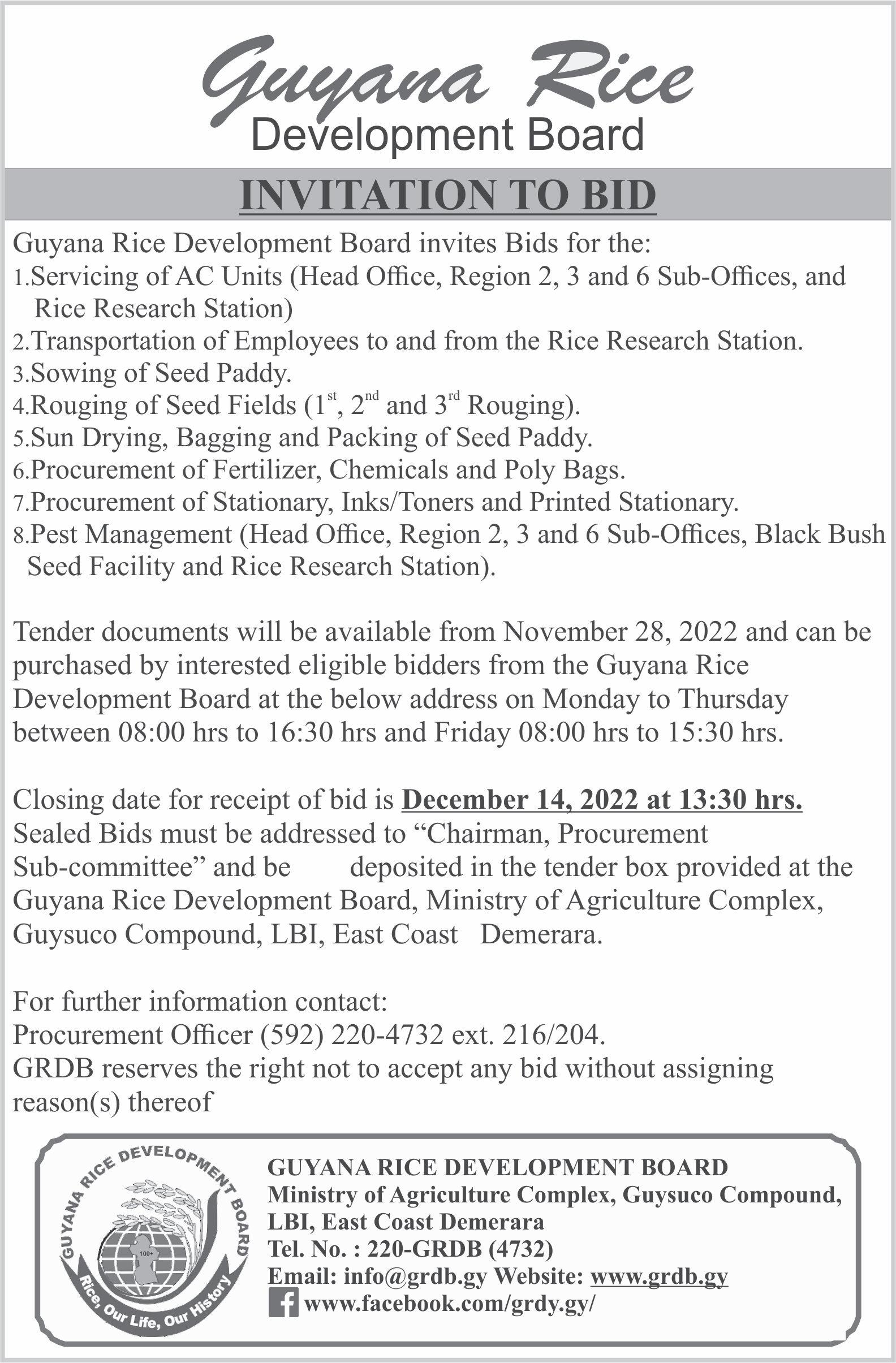
efficiently complete everyday tasks accurately or in a timely manner.
Dyscalculia is real. Dy scalculia is not just a phase. Dyscalculia is based on the sciences. Dyscalculia can be caused by genetics—it’s hereditary and can be passed down from parent to child. While I was never evaluat ed for it and my claims of having it are not backed up by a doctor, I believe I am challenged with based on my own understanding. Some common signs of dyscalculia
you’ve noticed your child having a difficult struggle, a harder time than they should in mathematics, then I’d advise you to get them help from a psychol ogist or psychiatrist as soon as you can. You can also try to improve their skills and abilities through one-onone training and tutoring.
For adults, unfortunately, there are not many options for dyscalculia. Howev er, I urge you to use your modern technology such as calculators and the internet to help—there’s no shame in that! You should not be embarrassed or ashamed of it; I definitely was, but as I read and understand a
bit more about this learn ing disability, the less I feel alone and ashamed of it. I’m not a lazy mathematics student, nor am I a “dunce” in it. It feels good to know that something that I’ve been struggling with all my life, has an explanation for it.

mares about writing the subject of mathematics. I’ve attended three extra lessons and even had private math tutoring with my uncle, a former educator, during my CSEC years; plus, I attend ed regular classes in school and even all of that—the best I could’ve pulled off at the CSEC level was a grade 3. That is still a pass; in my eyes, it’s a win. However, I can’t stress enough the amount of effort and over time work I’ve had to do, just to get that. Whenever someone gives me a number of related scenarios or prob lems to solve, my response is always, “math isn’t my thing. Try someone else.”
I’ve constantly asked my
misconception about this is that children will somehow “outgrow” it, but this isn’t the case. People with this mathematics learning disabil ity may have challenges in different ways—not everyone is the same. Many people, especially parents and teach ers, misjudge dyscalculia as just a student or child being “bad at math.” At least that’s how I was and still am being viewed. This learning disabil ity is not funny, it’s not to be taken lightly and it’s definitely something that can affect a person into their adulthood.
Mathematics is one of modern life’s most fundamental topic areas and concepts. Failure to understand and grasp it can result in an inability to
in school-aged children are problems remembering math facts (such as timetables), not being able to count, recog nizing the same mathematics problem if it’s turned the other way around, and doing simple calculations from memory. Some common signs in adults include being unable to count backward, solve word prob lems, and unable to under stand or convert fractions. Do you remember my anxiety and cold sweat from earlier? Well, it turns out those are some other signs of dyscalculia. There are emotional symp toms such as anxiety (test anxiety) during examinations and even physical symptoms such as vomiting or sweating.
If you’re a parent and

GUYANA started seriously considering upgrading its health surveillance system this past week to better detect communicable and non-communicable dis eases. Once pursued, this upgrade should see data collection and analysis be coming a prominent part of planning in the health sector, and I believe the health sector and the peo ple in need of healthcare can only benefit from that.
Before plans are exam ined, it is important to ac knowledge the current state
Beyond these statements, there are other ways to un derstand the shortcomings in data collection and use. Several days before the sym posium, the Health Minister said that it is estimated that about 60,000 people live with diabetes in Guyana. That figure, he however said, could be much higher since many people avoid regular medical checkups and there is little data to assess. Simi larly, with mental health, it is estimated that some 20,000 Guyanese are battling severe mental illnesses but again,

severe mental illnesses, more funds could be budgeted for mental health care; or, if there is a larger number of people battling diabetes, then more resources can be allo cated for support services.
I believe valid data that helps to inform deci sion-making is at the centre of such plans. We cannot ably nor adequately plan un less the data that accurately and reliably meets our needs is garnered. Take for exam ple the distribution of drugs in Guyana too; for years, citizens listen to stories of
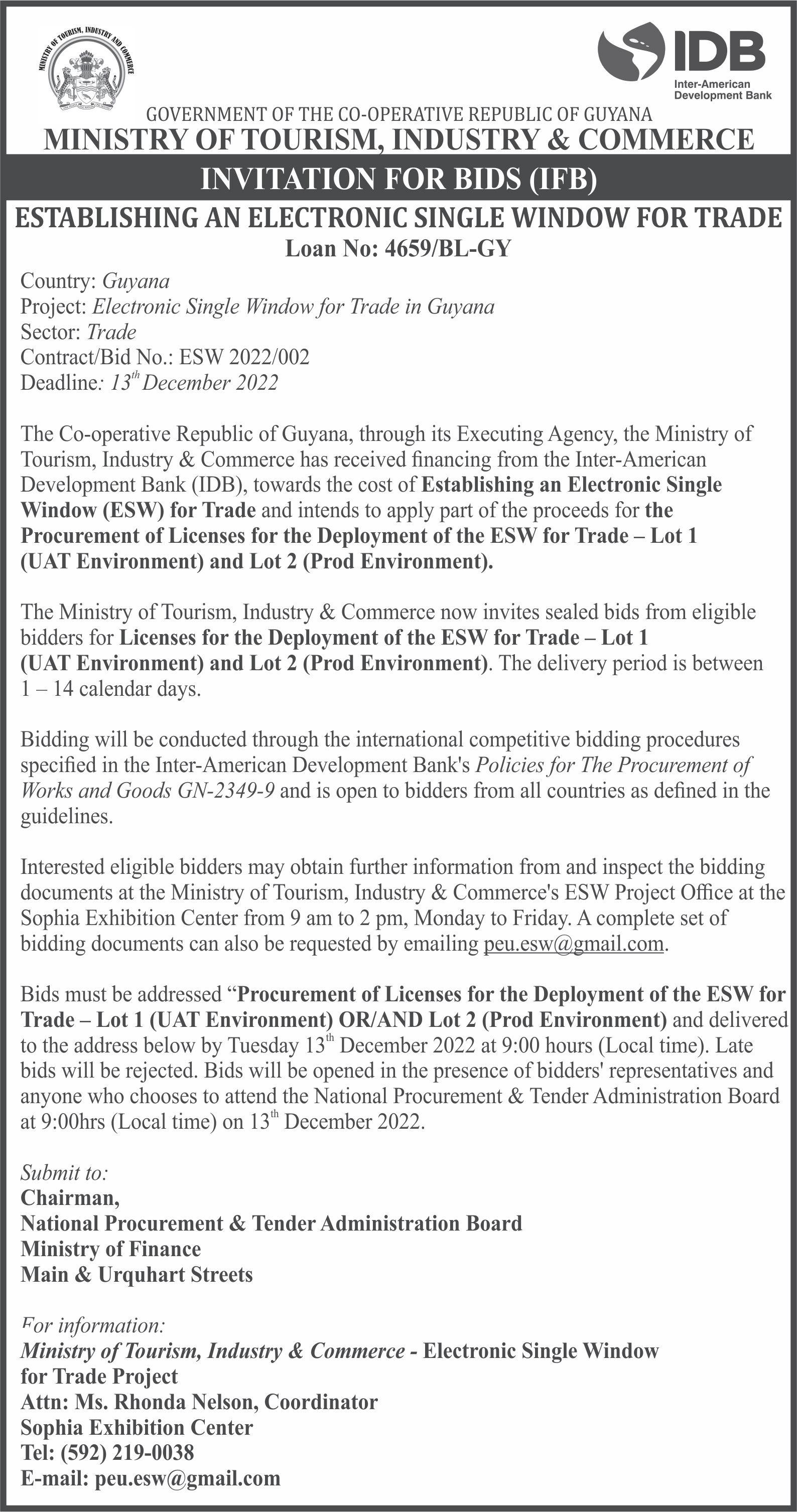
of the health sector vis-à-vis data-collection efforts. Last week, the Minister of Health Dr Frank Anthony said that limited data-collection ef forts challenge Guyana’s healthcare response.
“We don’t have a very strong and robust system of collecting that information, aggregating it so that we know exactly how many people we are treating,” Dr Anthony said at the launch of the National Health Sur veillance symposium on Tuesday.
He added, “When we look at the information that we have in our cancer reg istry, it’s dated, and that’s because there’s no real-time collection of information. There’s a delay sometimes by months, sometimes by years, and because of that our registry is not able to give us accurate informa tion.”
Dr Anthony said the figure might be much higher with more robust data-collection efforts.
Limited data collection and outdated statistics im pede much-needed efforts to improve the healthcare system. And as such, some people who need treatment would likely not receive that.
The need to know this information isn’t just for treatment purposes. It is, or should be a crucial aspect of the planning process. There is an evident push towards expanding the health infra structure in Guyana with the creation and/or upgrad ing of several hospitals and health centres. With this focus, knowing how many people need care (including specialised care and specific drugs) could see stakeholders planning to respond to those needs. For example, if more people are grappling with
unused and expired drugs be ing dumped, largely because the data system that regulates the distribution of drugs to health facilities, reportedly, has its shortcomings.
For emphasis, data and statistics are quantitative tools that are used to keep records and assist in studying and analysing occurrences and trends. They help inform decision-making, since such information provides a more credible and reliable mecha nism for solving problems.
The need for more and improved data-collection systems and analysis extends (or should extend) beyond the health sector. In the ed ucation sector, for example, there are indications that population data is informing school-expansion plans. In the aftermath of devastating fires at public buildings,









THE nexus between the Environmental Protection Agen cy (EPA) and the tourism sector in Guyana is much more meaningful and interdependent than what is usually presented. There is no doubt that with the new petroleum finds and the pristine biodiversity of our forested areas, tourism can be seen as a main economic contributor to the economy as visitors travel to these breathtaking des tinations. Thus, tourism, specifically eco-tourism, has the potential to create beneficial effects on the environment by contributing to environmental protection and conserva tion. Activities in protected areas serve as a way to raise awareness of environmental values and can serve as a tool to finance the protection of natural areas, and increase their economic importance.
On the contrary, the impacts of tourism are linked to the construction of general infrastructure, such as roads and airports, and of tourism facilities, including resorts, hotels, restaurants, shops, and golf courses. Thus, the negative impacts of tourism development can gradually destroy the environmental resources on which it depends.
As such, the Agency contributes both directly and indi rectly to the development of our beloved, transforming coun try of Guyana. The EPA mandate is linked to tourism as it al lows for both setting of permit and compliance conditions for projects that facilitate tourism-related activities. This way, the EPA’s permit conditions will vary to accommodate different activities that fall under the tourism sector. In addition to per mitting and compliance, the EPA also conducts investigations
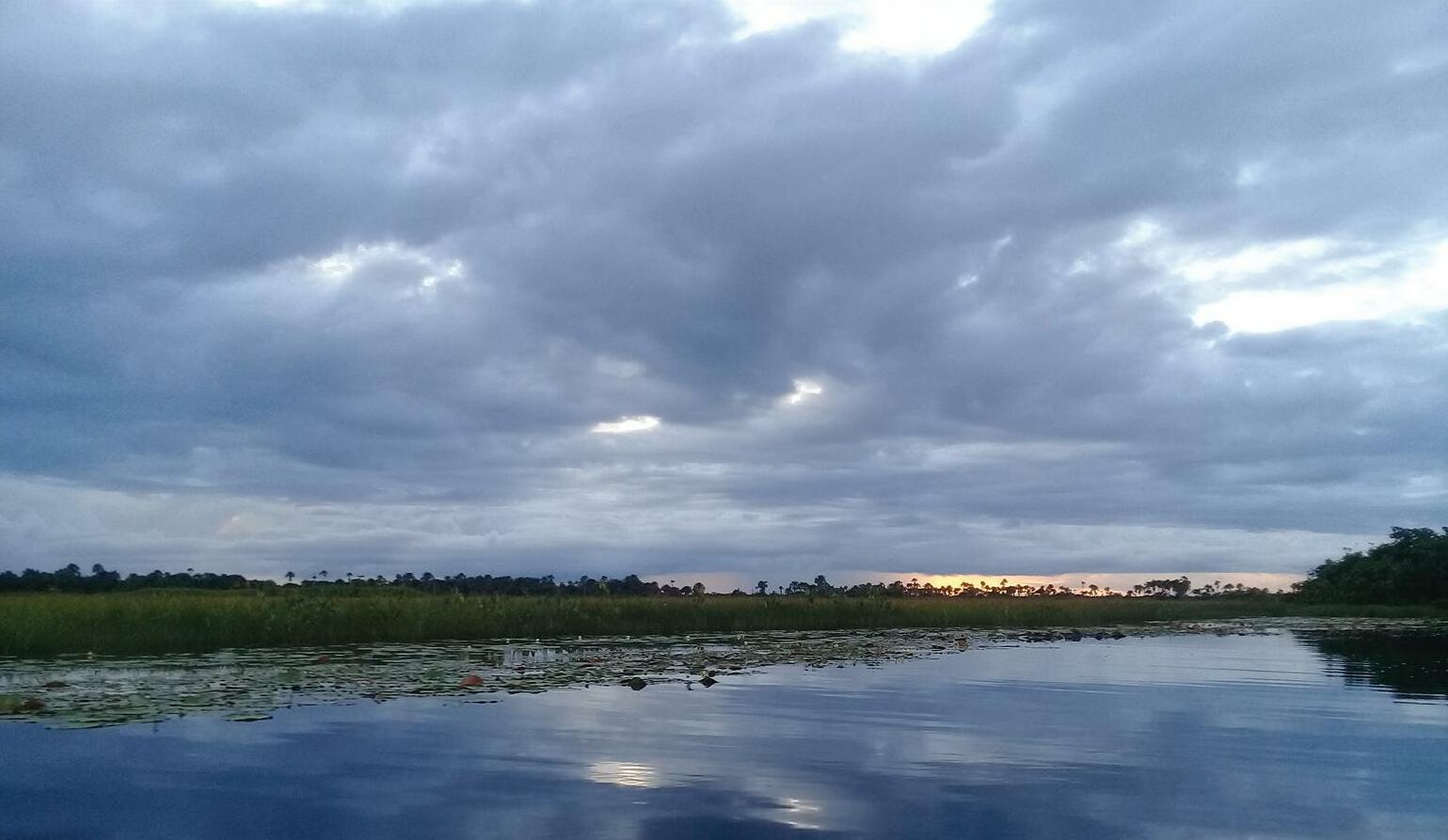
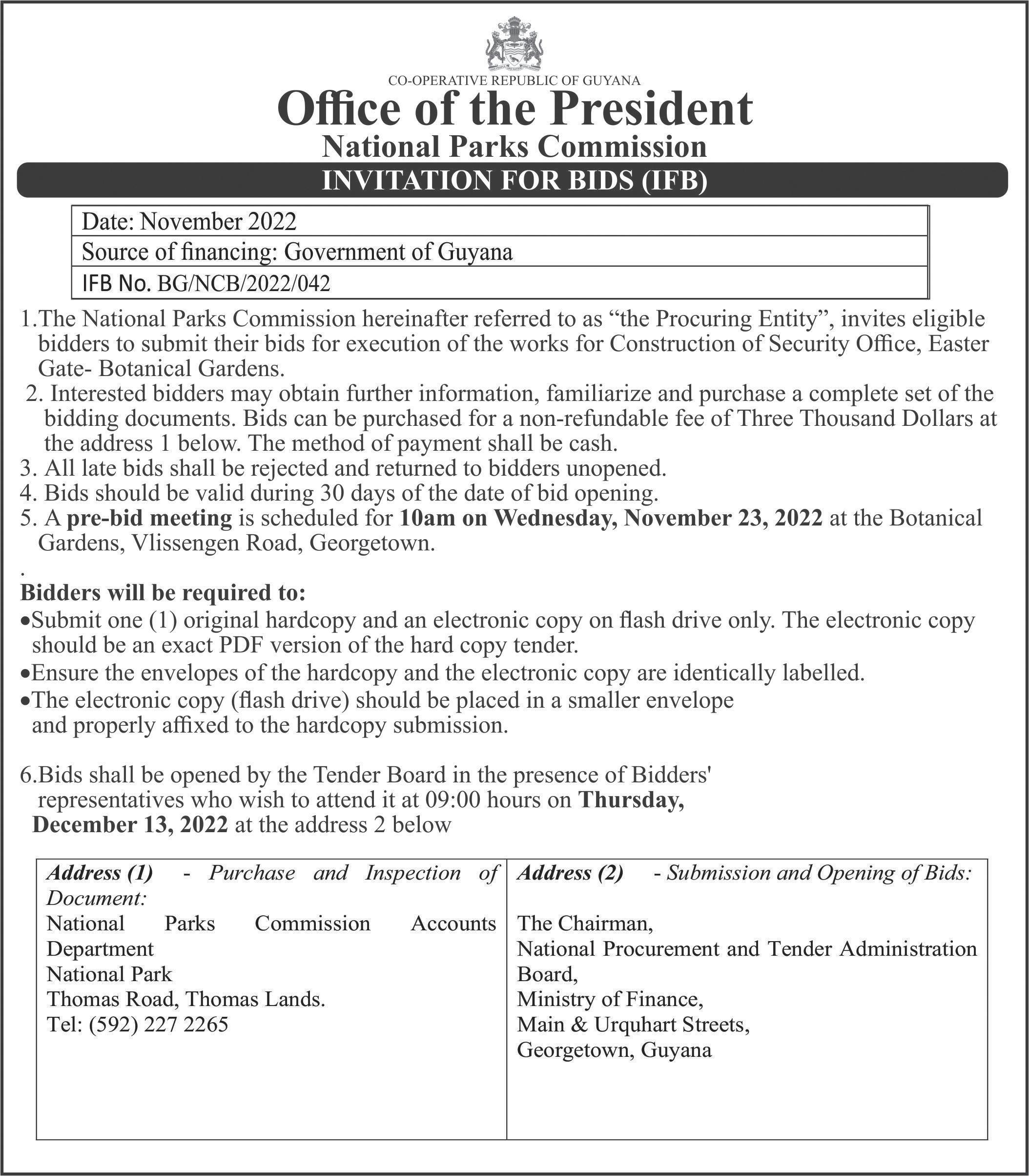

into complaints as with oth er sectors, in keeping with its mandate to promote, facilitate and coordinate ef fective environmental man agement and protection; and the sustainable use of Guyana’s natural resources.

Finally, the EPA is re sponsible for ensuring that tourism operations comply with the Agency’s rules and regulations. This entails the
PAGE XLVII
FROM PAGE XVIII
and customs of the traditional Guyanese Christmas, and our committee accepted this proposition with enthusiasm.
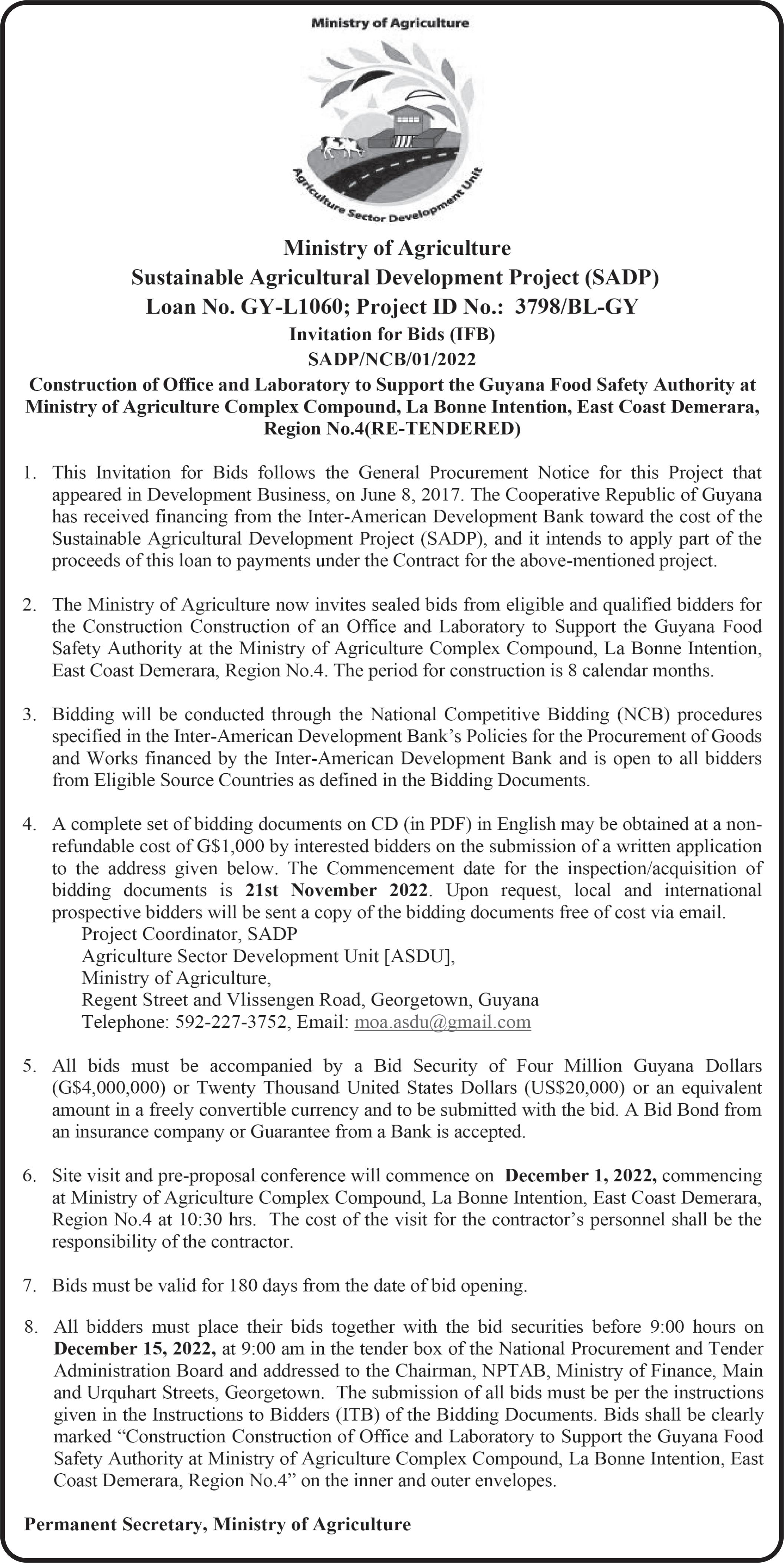
The first items identified were the range of Moscato wines recently launched on the local market by Banks DIH as well as their world-class crackers and vanilla cookies. In the Moscat range there are mango, watermelon, cherry, Moscato white and pink, and port-flavoured. There is also a hard wine. In the past, “Banks” had produced wine out of imported grape pulp which resembled the wines of France, but they decided to use the local grain of the country as other wine-producing countries had done for centuries. Scotch whiskey and its relatives, for example, is produced from wheat and what gives Scotch its distinctiveness is the use of the waters of the various mountain rivers of Scotland. Vodka uses wheat, though lower quality Vodkas use other bases, even potato. “Banks” uses rice to produce its wines just as other rice-pro ducing countries do. The famous Maotai of China or Sake of Japan are rice wines and those and other rice-based wines of Asia are enjoyed by hundreds of millions. Rice wines were home-produced in Guyana for nearly two centuries, but they differed in strength and taste from family to family. Today, “Banks’” wines are standard and are as Guyanese as Whiskey is Scottish. The Moscato range’s various flavours is designed to cater to Guyanese taste. The Banks Moscato range would make an appreciated Christmas gift and it also has the plus of being attractively labelled and bottled.

Banks DIH also produces world-class crackers and vanilla cookies, and their packaging is attractive and our consumer members who used them felt that they could make good Christmas gifts. Indeed, many members said they would prefer to gift the Banks biscuits rather than the Danish cookies which inundate the market at Christmas and whose main vir tue is the blue tin in which they are packed. The “Banks” crack ers and cookies are a far better value for money than the Danish cookies and in any case, people would welcome something new rather than the Danish cookies.
There are other top-of-theline local products which could make pleasing Christmas gifts. For example, Beharry’s vari ety of sweets- Chico sweetswhich were formulated by one of Europe’s best sweet makers and whose packaging compares with the best in the world. And so are their range of 100 spices. A number of persons produce customised cakes, black cakes, fruit cakes and other varieties and a gift of one of their cakes would make a memorable gift. The ladies who make these delights could easily be contacted and given orders. The rums and liqueurs produced by Demerara Distillers Ltd (DDL) have won all the major prizes in the world and in many countries, Guyana is known only by El Dorado rums. Amerindian handicraft and crockery made with Amerin dian motifs make unique gifts. Probably one of the most interesting and unique gifts are the ceramics produced by Guptie Jotis of Wakenaam. Mr Jotis is probably the only person in Guyana who uses a potter’s wheel to produce his ceramics and this ancient technology will eventually disappear from Guyana when Mr Jotis retires. He pro duces diyas, goblets, plant pots, vases and kalsas, sun dries his products and then lightly fires them. Buyers of his ceramics could do their own paintings on them, adding a personal and unique touch to them. There is an interesting world of local products which those looking for memorable and appreciated gifts could explore.
FROM PAGE VII

The team also met Savita Mohanlall, a shopkeeper with a very clean environment and a nice little cottage downhill at Hyde Park, Timehri.
However, her little shop is on a hill near the mina public road and is a very convenient location for passers-by.
The mother of five told the Pepperpot Magazine that she

opened the shop in 2019 and way before that, she always ensured her immediate surroundings are clean.
Her husband, Imtiyaaz Ally, would support her fully and he would keep the bus shed and the roadside free of litter and weeds.
The 54-year-old has the cleanest yard and environment and has added a lot of plants and flowers to the place for that burst of colour to add a natural décor.
Mohanlall reported that she was born and raised in anoth er section of Timehri, but moved to Hyde Park 28 years ago.
The mother of five stated that when they moved there, the place was busy and they had to clear the land to build a house and it took some time to get that completed.
She reported that the place was full of garbage and they had to clear it as well and it took some time to burn and bury the rubbish which had piled up.
“This is a nice place to live and the people are of different races, but we live in harmony and it is a safe neighbourhood because most people are family and the atmosphere is nice,” she said.
Mohanlall added that apart from Timehri she used to live in Barbados and Hyde Park is her home, because it is a peaceful place and she certainly will not relocate.
In her younger days, she used to be a domestic worker in the city and wanted to be close to home, that is why she established a small business to bring in an income, even if it is a bit slow.
“Life here is like a scale and weight, so it is basically up and down, but I am determined to endure and try to cope no matter how hard things may get,” she said.
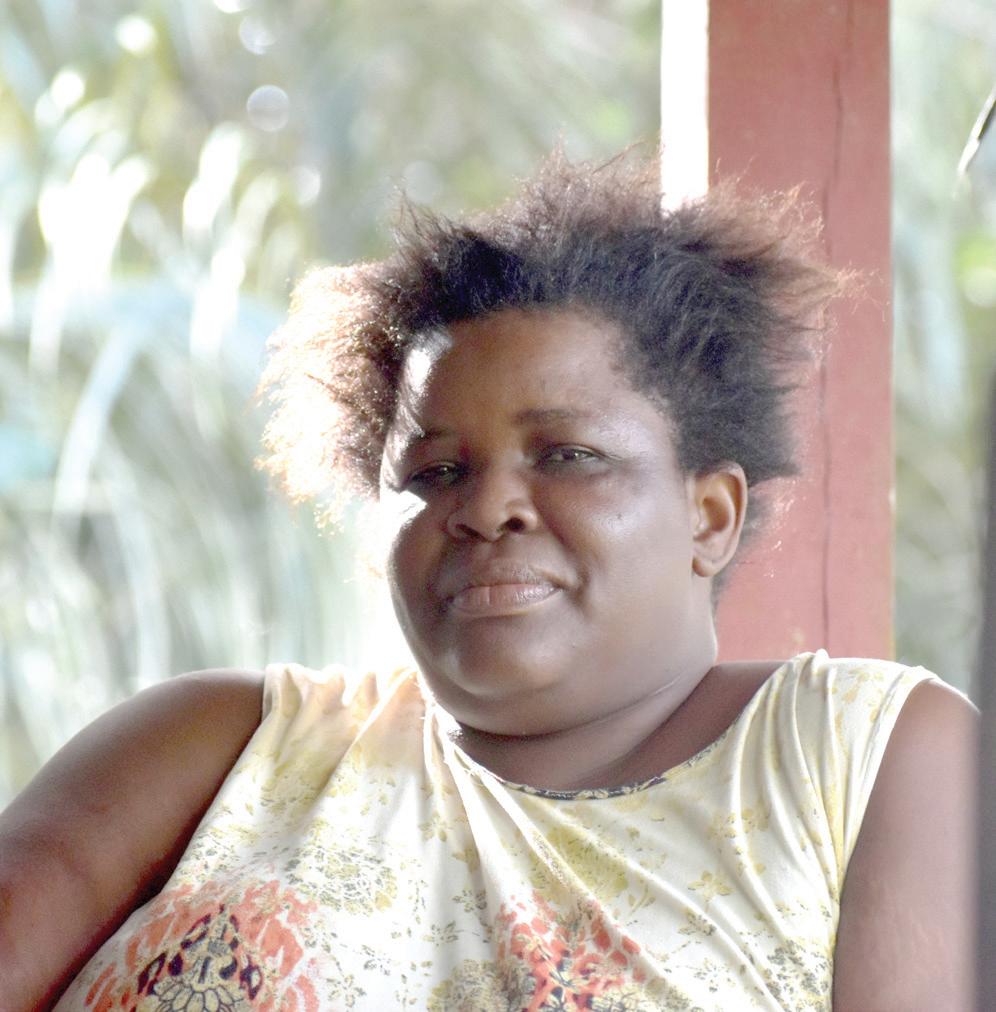
THE name immediate dentures sound like something produced by a fast-food version of a dental office. How ever, ‘immediate’ in this context means that the denture is placed immediately after the dentist extracts the teeth. Most people do not realize the problems that arise after dentures are placed. How would you like to have an ar tificial leg rather than your natural leg? I feel safe in assum ing that you would emphatically answer: “Definitely not!” So, replacing your natural teeth with either a full or partial denture is about as desirable as having an artificial leg.
Dentures allow you to chew; an artificial leg allows you to walk. The problem in both instances is the performance quality of the artificial replacement in comparison to what nature originally provided. Quite simply, the artificial re placement will never function as well as your natural teeth, no matter how good it looks.

Dentures are not maintenance-free; they need adjust ments. It is not that the denture changes; the tissues under the dentures change. A denture adjustment is necessary when the denture material must be removed from the den ture to relieve pressure at pressure spots that occur when bone and tissue shrink. Since tissue shrinks as it heals, dentures placed immediately after the teeth are extracted sometimes need to be relined as soon as the tissue has healed. All dentures need to be relined periodically to adjust for normal tissue changes. So a denture is not a one-shot cure. It is very important to see your dentist once yearly, so the tissue under the denture can be monitored.


With this overview, let me offer a word of caution. Your dentist may offer you options on types of tooth replacements possible in your case. Offering you treatment options is part of your dentist’s obligation. You need to become a wise, in formed dental consumer so you can discuss the best decision for your situation with him.
As a general rule of thumb, fixed prosthodontics (crowns and bridges) are more expensive, than removable prosthodontics (full or partial dentures). However, fixed prosthodontics is usually a more desirable replacement. Dentures also vary in cost depending on the type of teeth, the material used to make the denture base, and the number of steps followed to construct the prosthetic device. If you find a place that claims to be able to make your denture in one day for much less than the fee being charged in the area by most other dentists, you will probably get exactly what you pay for. Let the buyer beware! They are no bargains in healthcare!
Here is a typical example of what happens in preparation for an immediate denture. The first phase is the remov





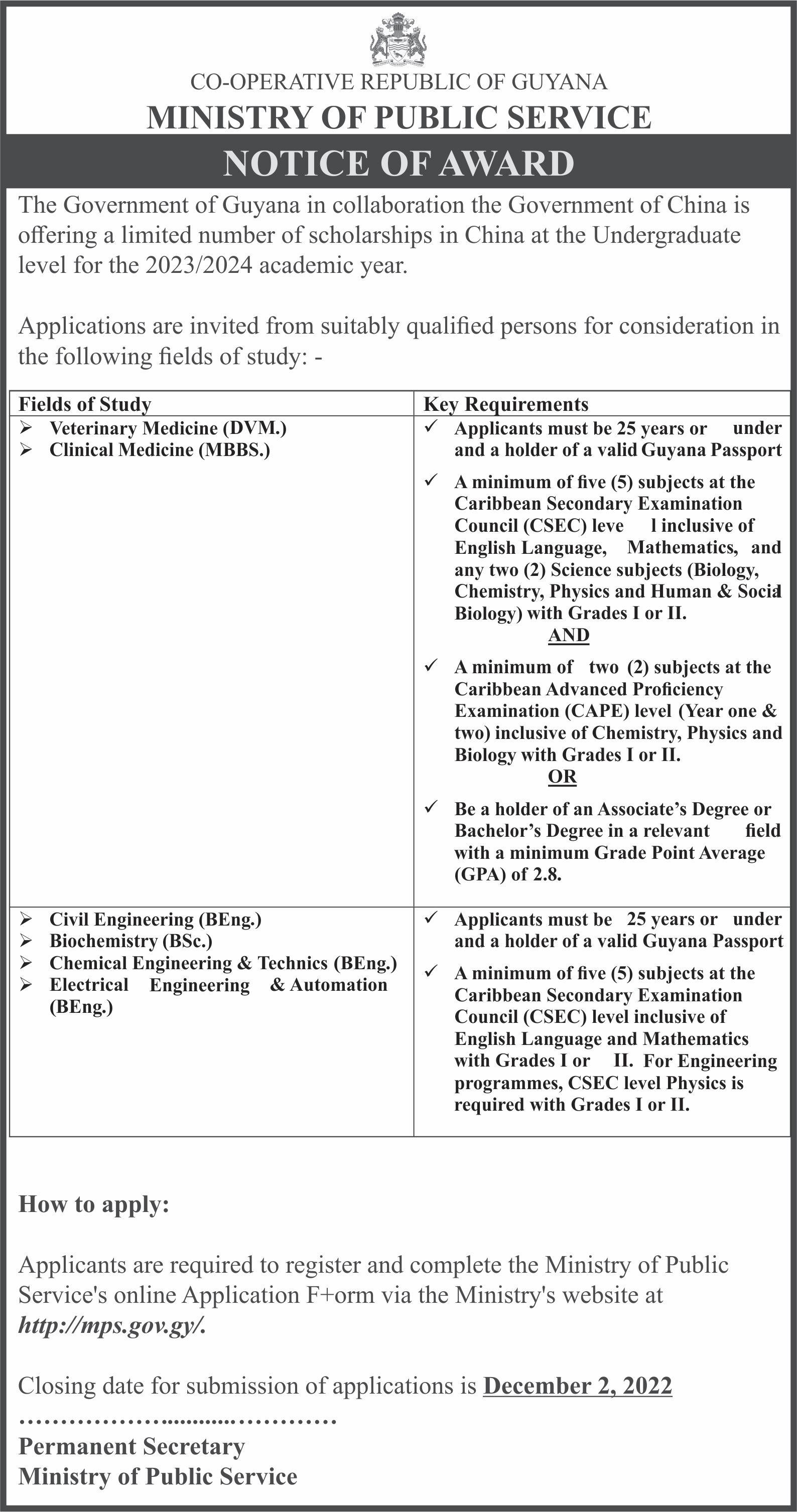









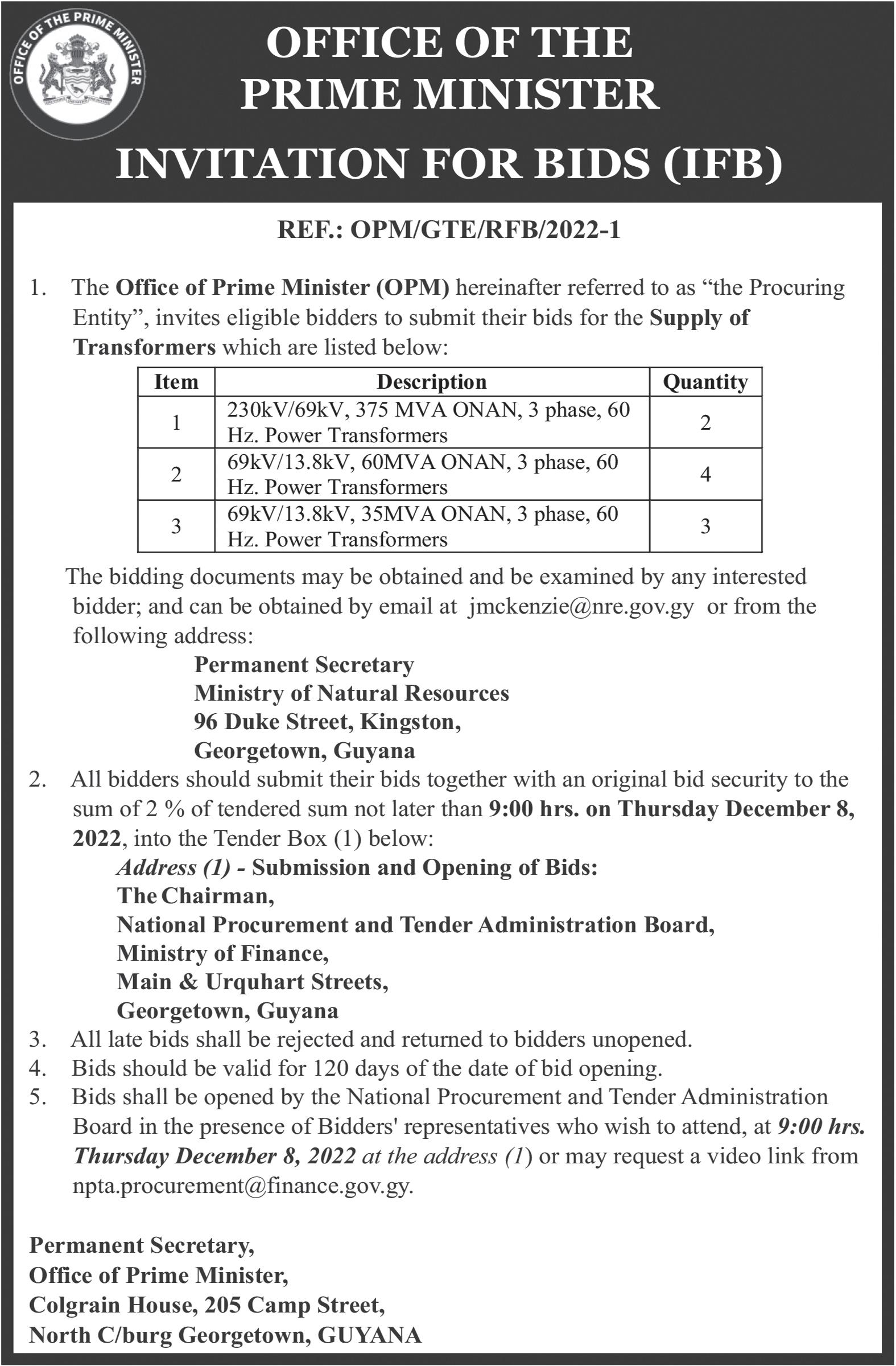


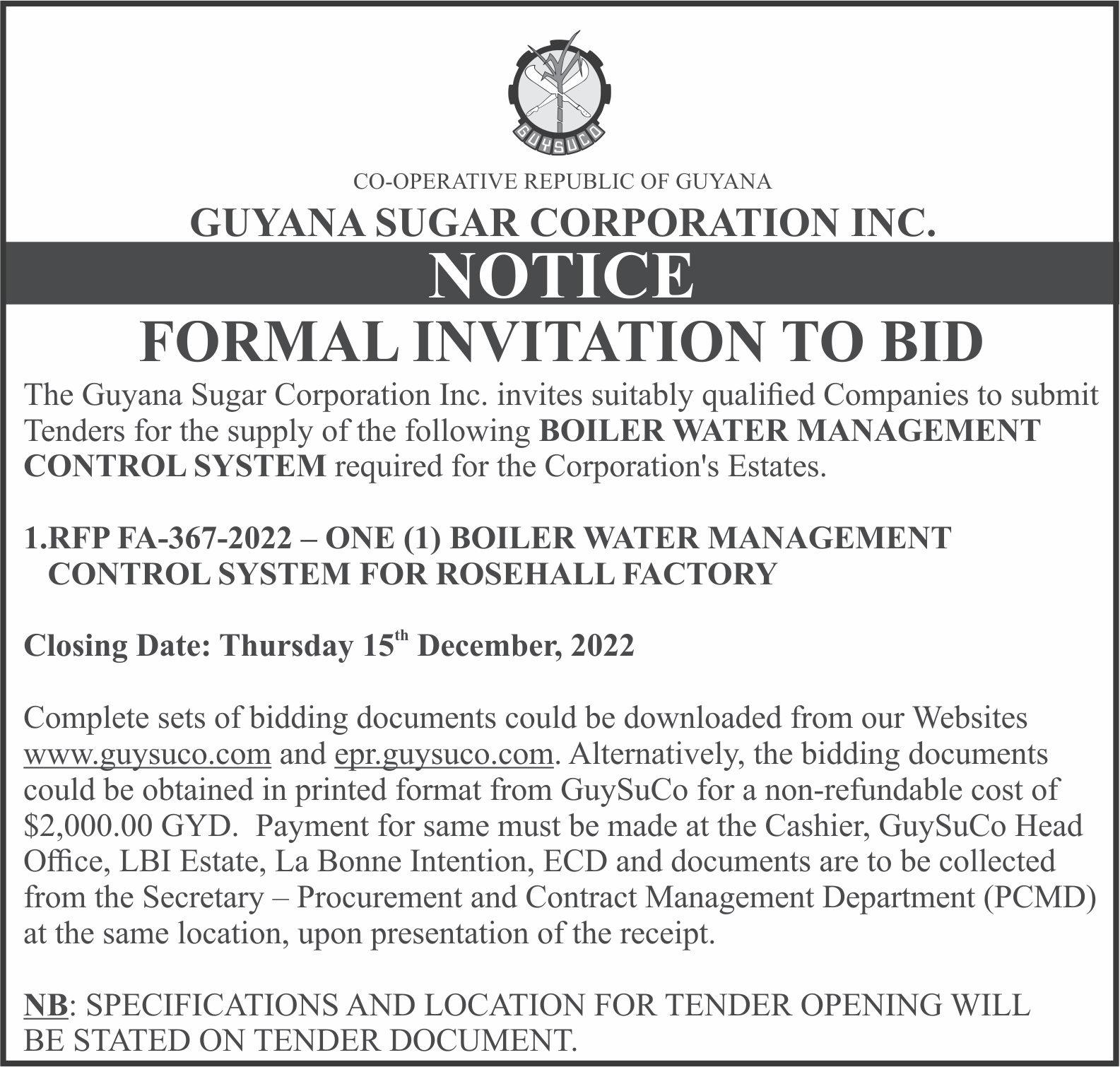


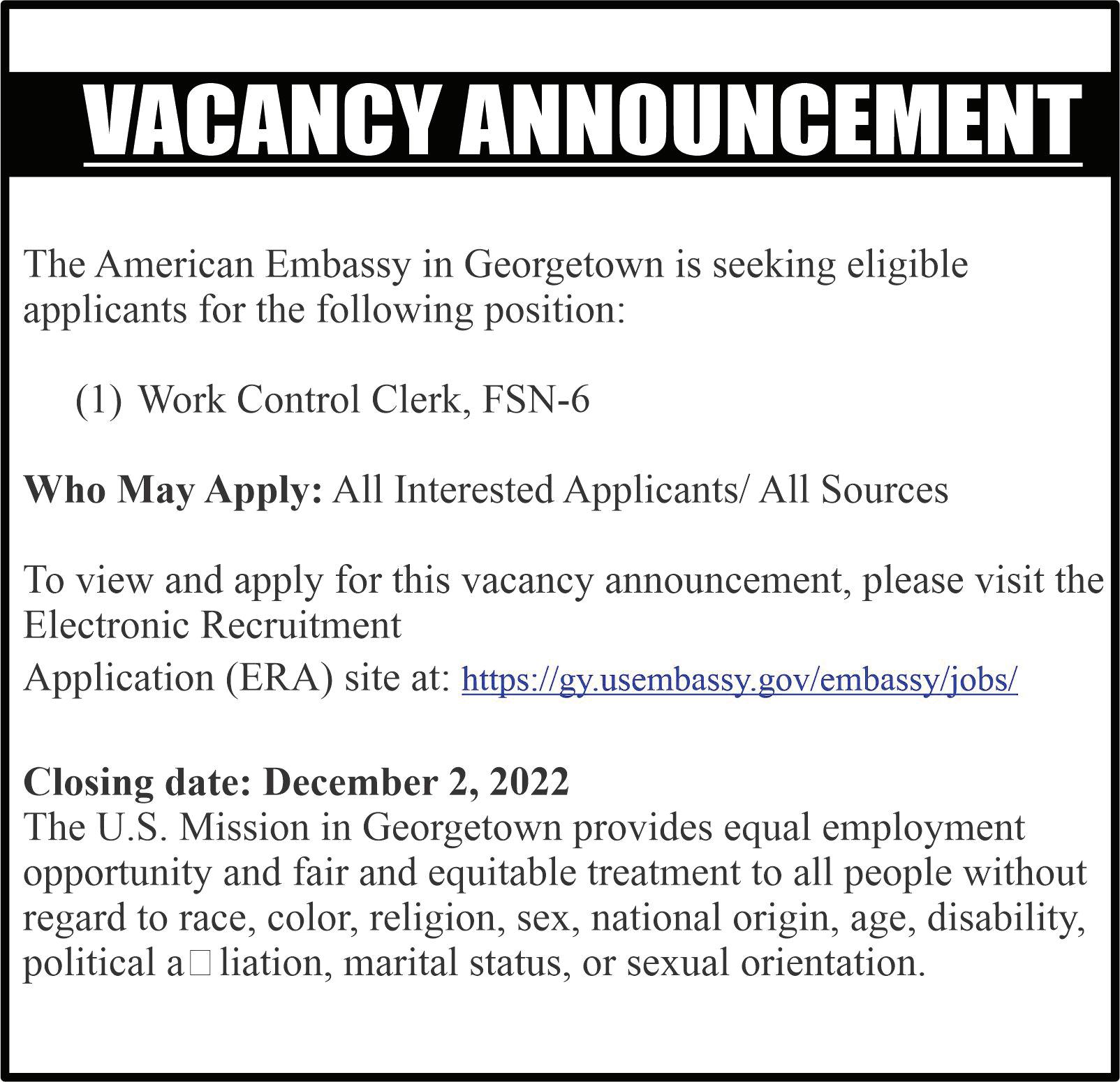

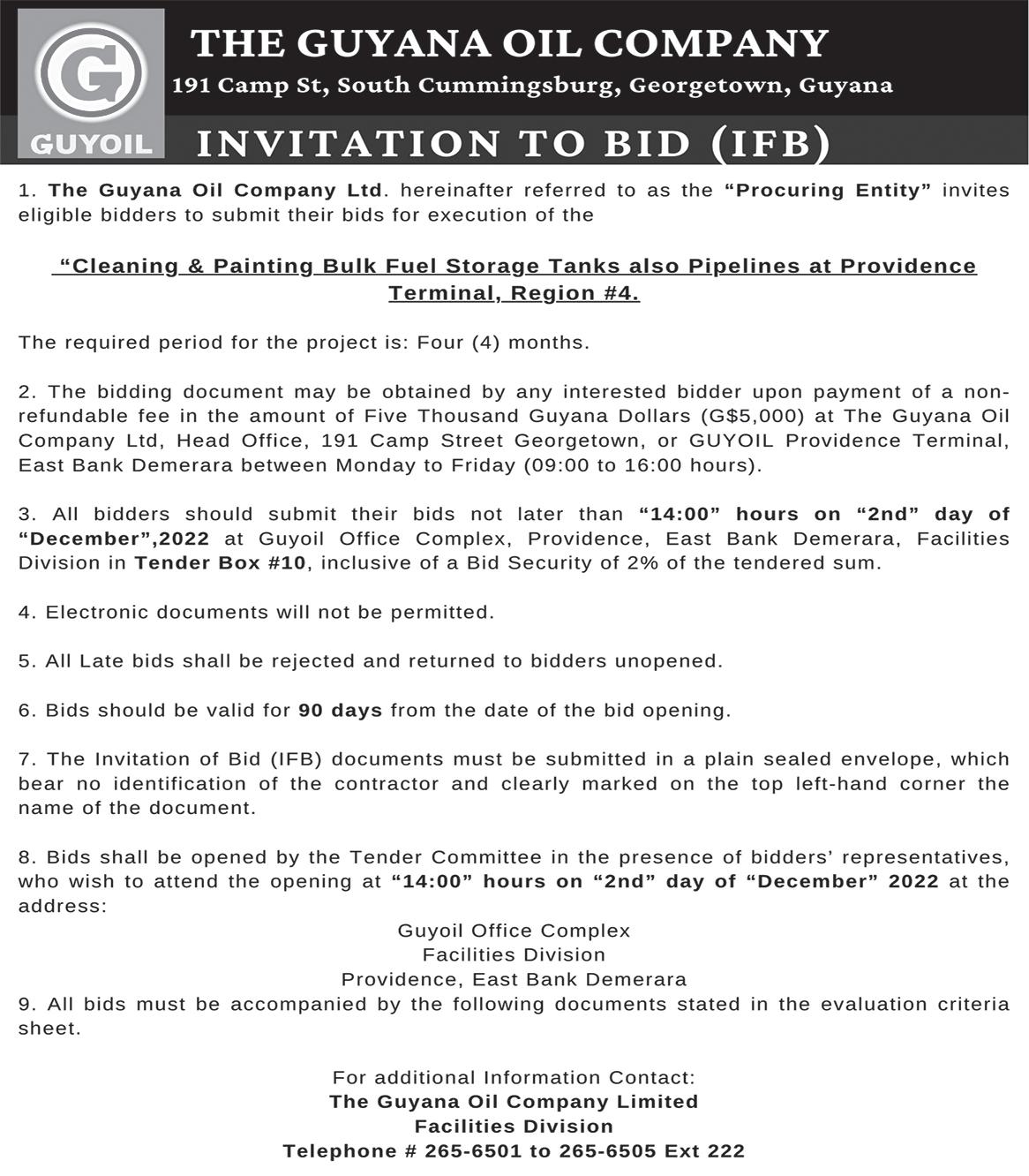

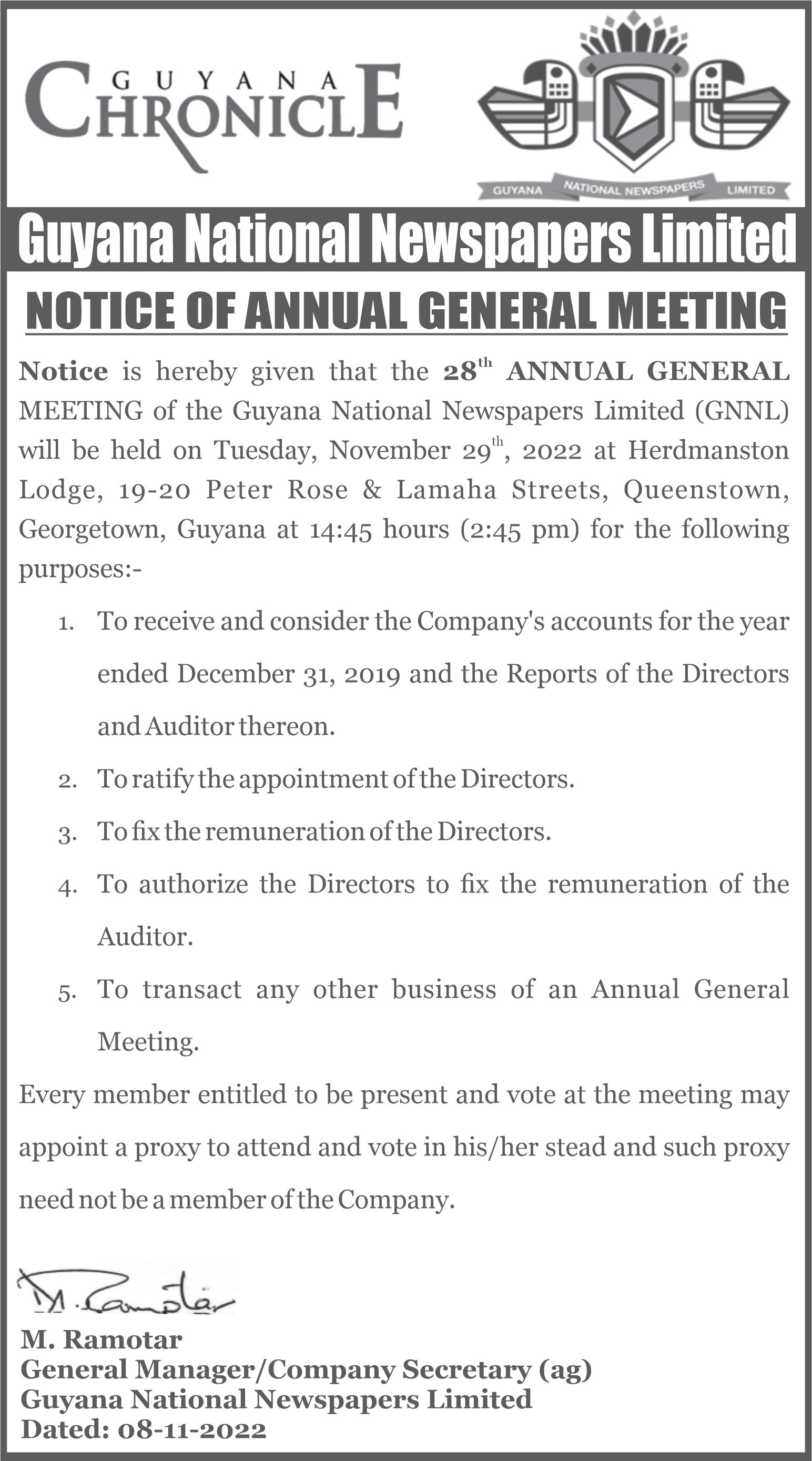







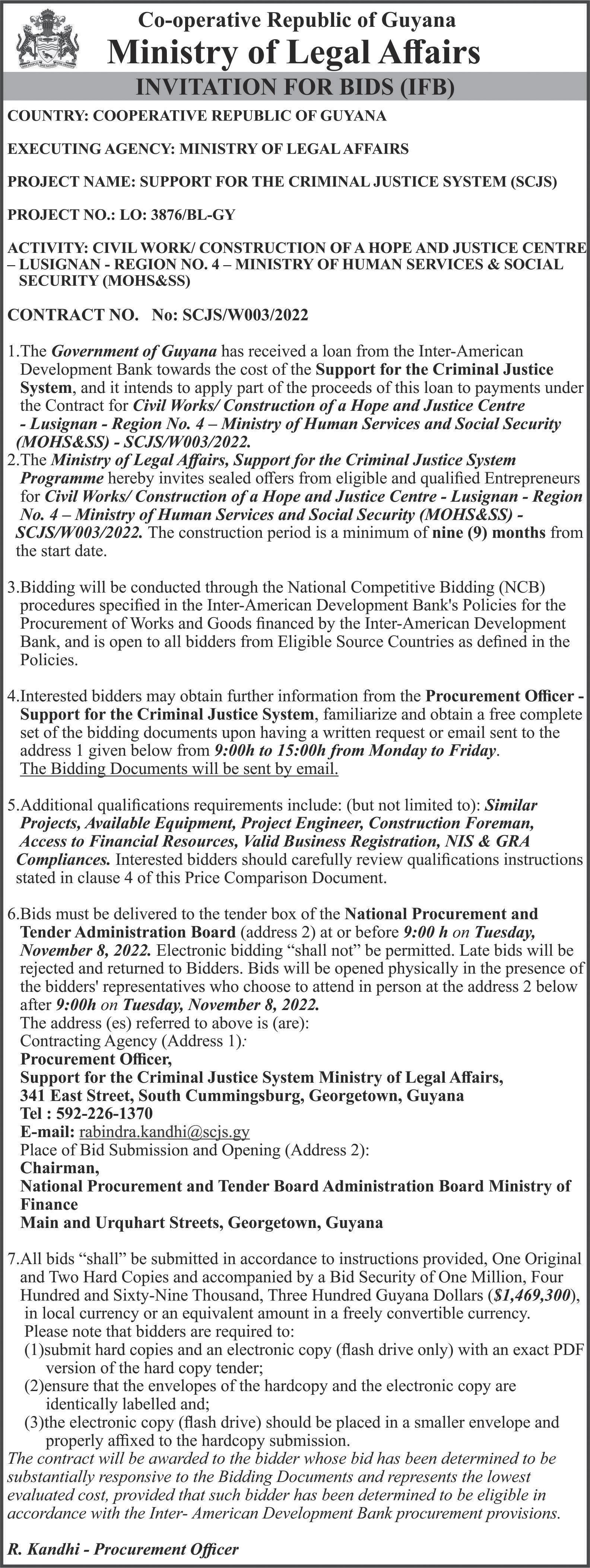
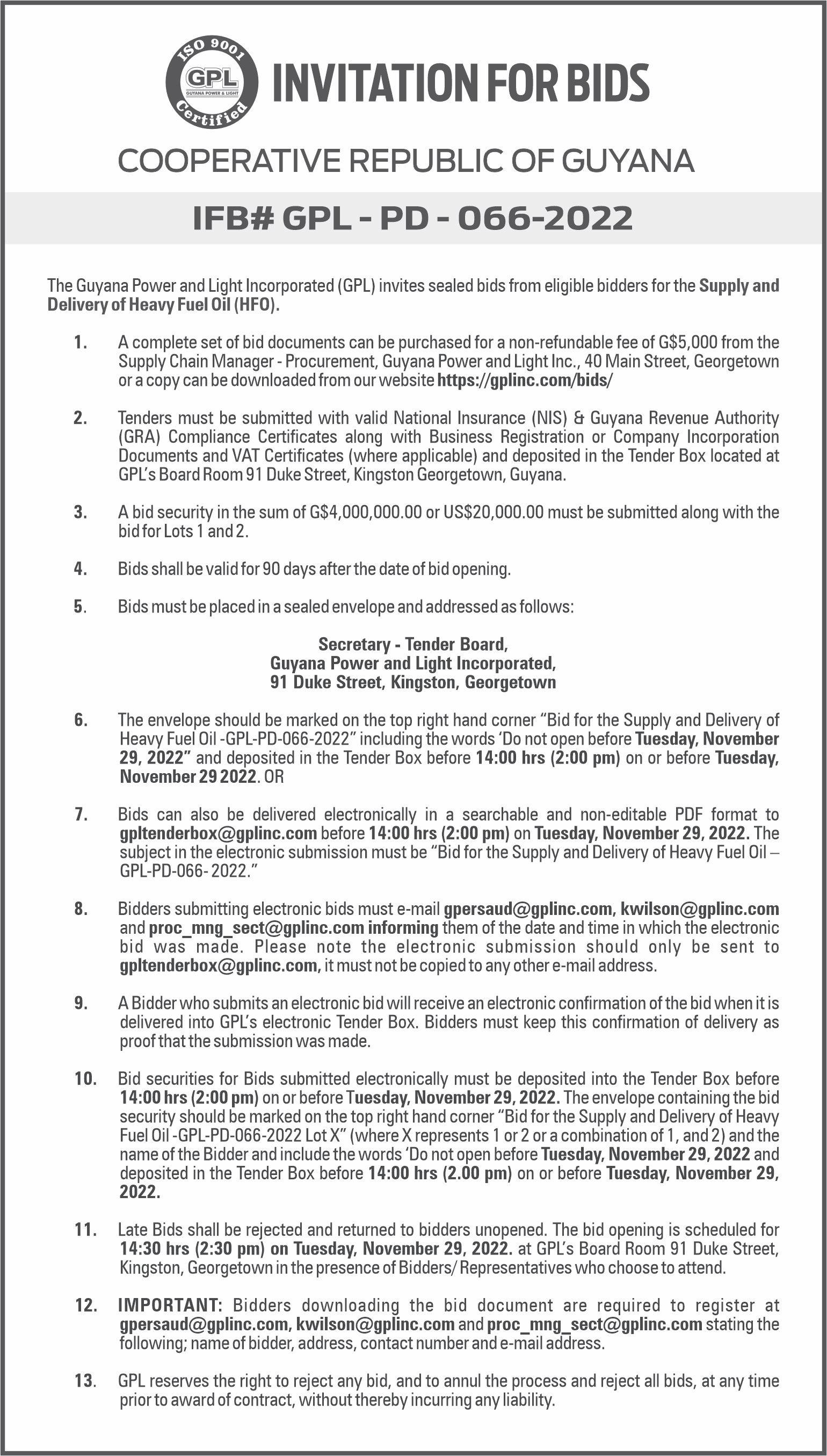






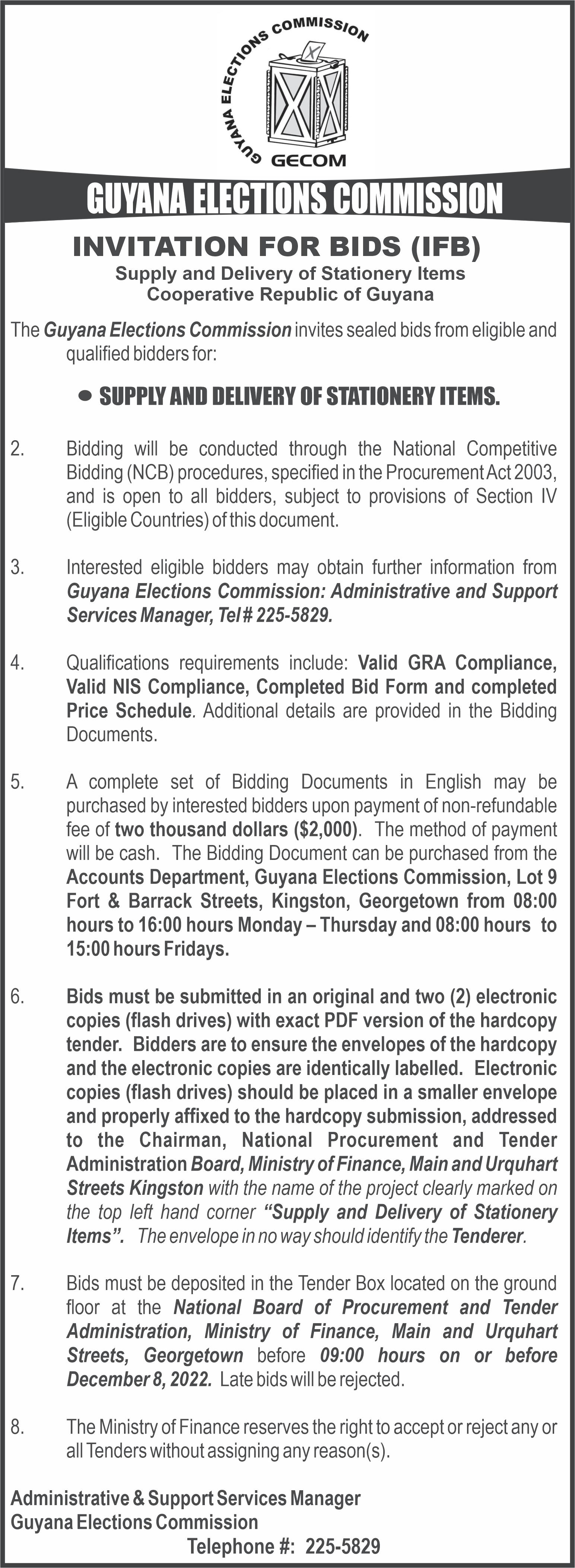

Be good, sweet maid, and let who can be clever; Do lovely things, not dream them, all day long.
CHARLESDear Student, Welcome dear friend. Beside knowing much about your examination content and format, and having pri vate, suitable sessions, it is also good to immerse your
self in the language. Become a genius for observation. Read widely and wisely. Read newspapers, books, magazines; watch television; listen to well-put-together speeches, music. Are there specific, colourful, forceful words and phrases to arouse vivid images; also, variety in the kinds of sentences used, or whatever will build you for your coming examina tion? Be good.
Love you.
1. Improving writing
Read this passage care fully. What sort of atmo sphere does it have?
This farm, which he called the house farm, was about one-third of his hold ings. He had another farm of sugar-cane elsewhere, some forty acres large but this one was mixed, with bananas and yams and farm animals.
The part of the land which sloped up from the river was shared seventy-thir ty by bananas and yams, but the flat stretch, which was damper than the rest, was the pasture. It was dotted with thinned guava trees and the occasional breadfruit. It grazed six cows and calves altogether and Boysie, the horse. Five goats and some poultry made up the rest of the animal population.
The river looped through the land with various wa ter plants and bamboo trees keeping it company. The bed was very rocky in parts. Rounded river stones of var ious colours and sizes were strewn along the course and the pools were everywhere. I looked forward to bathing in the best of them, but since there was hardly any fun in doing this alone I thought I should wait until I had made me at least one friend.
Tall coconut trees, scat tered on the farm, swayed gently.
1. How would you de scribe the scene: peaceful, lively, or ...?
2. Look at these verbs in the passage: sloped, dotted, looped, keeping company, strewn, scattered. They are unusual, and carefully chosen by the writer. What effect does each one have?
3. Can you imagine the first person ‘I’ of the pas sage? What do you think
might his or her connection be with the owner of the house farm?
4. Describe a scene you know well using about 400 words. Choose your words carefully, including some unusual verbs and adjectives to help your reader ‘see’ the scene.
5. Describe a place you know well like the block of houses where you live.
2. Working with adver tisement
Read the following ad vertisement carefully and then respond to the question below it.

Any host too mean to serve OVALTINE Crispies will need to refer to this free handy pocket dictionary. churl n. 1. (arch.) peas ant; grassroot person, or dinary person. 2. Ill-bred fellow; (arch.) surly person; hence churlish a., surly. curmudgeon n. churlish or miserly fellow.
parsimony n. carefulness in employment of money, etc. or (fig.) of immaterial things; excessive carefulness with money, meanness; law of parsimony (that no more causes or forces should be as sumed than are necessary to account for the facts); hence parsimonious a. penurious a. poor, scanty; stingy; grudging, whence penuriously adv., penuriousness n. rapacious a. grasping, ex tortionate, predatory; hence or cogn. rapaciously adv., rapacity n. (rapere snatch;...)
[Cut out and refer to, to find out just what your guests are calling you!!!]
If it isn’t chocolaty and crisp
It isn’t Ovaltine Crispies
What to Do Write one of the follow ing:
- a similar advertisement with dictionary entries to per suade the public that not to buy a certain item, e. g. tuna, classifies them as not wanting to enjoy the good life;

- an advertisement to per suade owners of micro-com puters that they are not on the cutting-edge if they do not buy a certain brand of equipment.
THE POEM
Sonnet 55 - William
Not marble, nor the gild ed monuments
Of princes, shall outlive this powerful rime;
But you shall shine more bright in these contents
Than unswept stone, be smeared with sluttish time. When wasteful war shall statues overturn,
And broils root out the work of masonry,
Nor Mars his sword nor war’s quick fire shall burn
The living record of your memory.
‘Gainst death and all-oblivious enmity
Shall you pace forth; your praise shall still find room
Even in the eyes of all posterity
That wear this world out to the ending doom.
So, till the judgment that yourself arise,
You live in this, and dwell in lovers’ eyes.
Working with the Poem Note: Each stanza of Shakespeare’s sonnet is a self-contained unit of thought.
1. To what do you think the following words and phrases refer: these contents (line 3); broils (line 6); Mars his sword (line 7); all oblivious enmity (line 9); lines 12 & 13 that yourself (line 13)? [Please find the solution to this question at the bottom of question 4.]
2. a) What are the “mar ble” and “gilded” monuments referring to in line 1? b) How are these memorials affected by time? c) Why does the poet believe that his memorial is superior to stone monuments?
3. The second stanza deals with the destruction of “wasteful war.” What is the “living record” that survive these disasters?
4. According to stanza 3, how does the poet assure his subject’s immortality? 5. In what sense does the poet use the word ‘live’ in the last line of the poem?
[KEY: these contents: the contents of this poem. broils: fights, brawls. Mars his sword: Mars’s sword. all-oblivious enmity: war which sends all to oblivion. 12&13: These lines refer to the belief that the world will come to an end with a final day of judgment, when all the dead will arise. that yourself: when you your self.]
FROM PAGE XXX
al of all teeth posterior to (behind) the cuspid teeth.
These ridges can heal and act as a stable base for the future denture. After the healing has occurred, the denture is constructed. Then, the natural teeth are extracted and the dentures are immediately placed in the mouth. This keeps the patient from having to be without his or her anterior (front) teeth at any time.
There are many advantages to immediate dentures, be sides the immediate esthetic considerations. They protect sensitive extraction sites, help control bleeding from the
tooth sockets, and protect the surgical area by covering it, thus keeping food and debris out of the extraction sockets.
An additional advantage that you might consider worth the extra expense of the immediate denture is that your dentist knows how your “natural” teeth appear. Thus, he is likely to be able to construct a denture that more closely resembles your natural teeth. This makes the transition easier when you see your friends and family because your appearance is minimally changed. The other option is that it is possible, if you want, to change your appearance with new dentures.

Finally, an immediate denture gives the dentist a better idea of how your natural teeth were biting. He can construct a den ture that better stimulates the bite you had before extractions.
Aesthetically, immediate dentures are a better way to have dentures inserted than having dentures made after going through a period of being toothless. However, they do not
present more problems.
More denture adjustments are needed when immediate dentures are placed, and these dentures sometimes need to be relined a short time after they are seated. The reason is that the tissue, including the bone in the area, shrinks during the healing process after the teeth are removed. The healing pro cess lasts about six months. This shrinking causes the denture to become loose and alter the fit. Relining is not needed as soon for conventional dentures fitted on ridges where time has lapsed after the teeth are extracted.
Usually, the immediate dentures themselves are not any more expensive than conventional dentures. However, since immediate dentures usually have to be relined as soon as the ridges have healed, the reline is usually an additional charge.
Environmental Authoriza
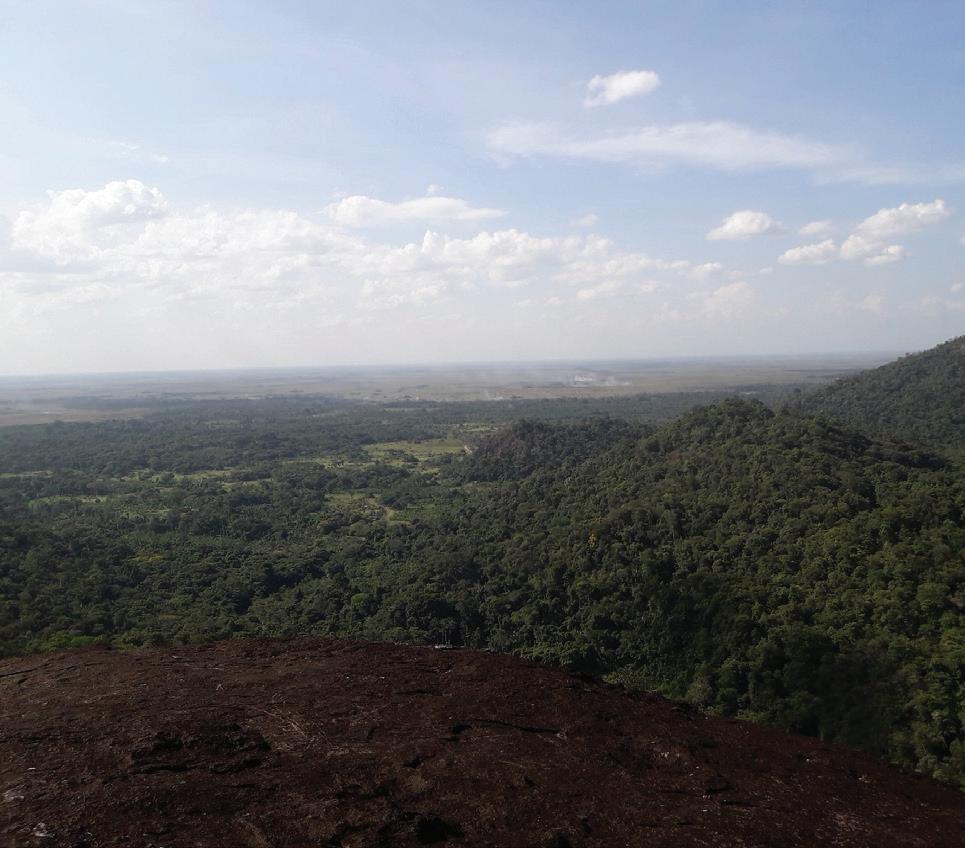
tion process which identifies potential sources of pollution and proposes measures that would minimize negative impacts. To this end, periodic inspections and monitoring systems are implemented to existing operations such as hotels and resorts, etc., to continue the beneficial relation ship between the EPA and the tourism sector.
You can share your ideas and questions by send ing letters to: “Our Earth, Our Environment”, C/O Communications, Environmental Protection Agency, Ganges Street, Sophia, GEORGETOWN, or email us at: eit.epaguyana@gmail.com. Follow us on Facebook and Instagram and subscribe to our YouTube channel.
FROM PAGE XXII such as the Brickdam police station, which led to the loss of much-needed paperwork, we need to embrace data and digital technologies more.
For this column, though, I believe that ongoing plans to upgrade facilities and divert more resources to the sector are crucial for expansion efforts to be guided by what currently obtains. Constructing six new hospitals, particularly those in underserved areas, is necessary. But it is also crucial to know how many people in which areas need specific types of care; where should a maternity hospital go? Where should the cardiovascular facility go?
If you would like to connect with me to discuss COVID-19, this column, or any of my previous works, feel free to email me at vish14ragobeer@gmail.com
